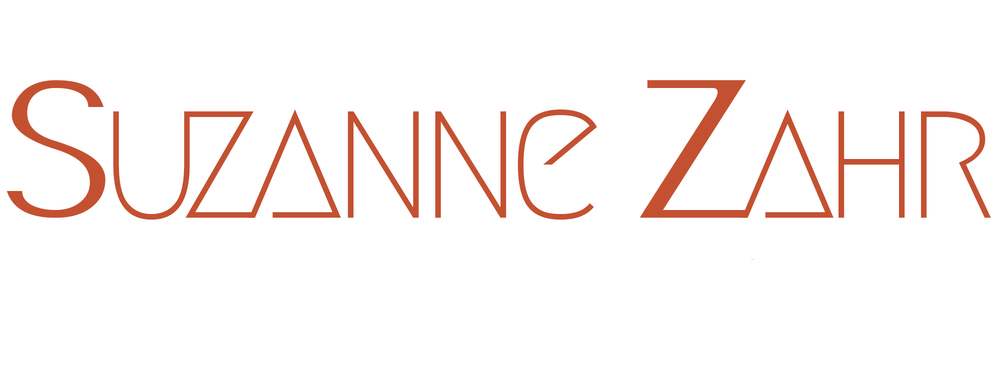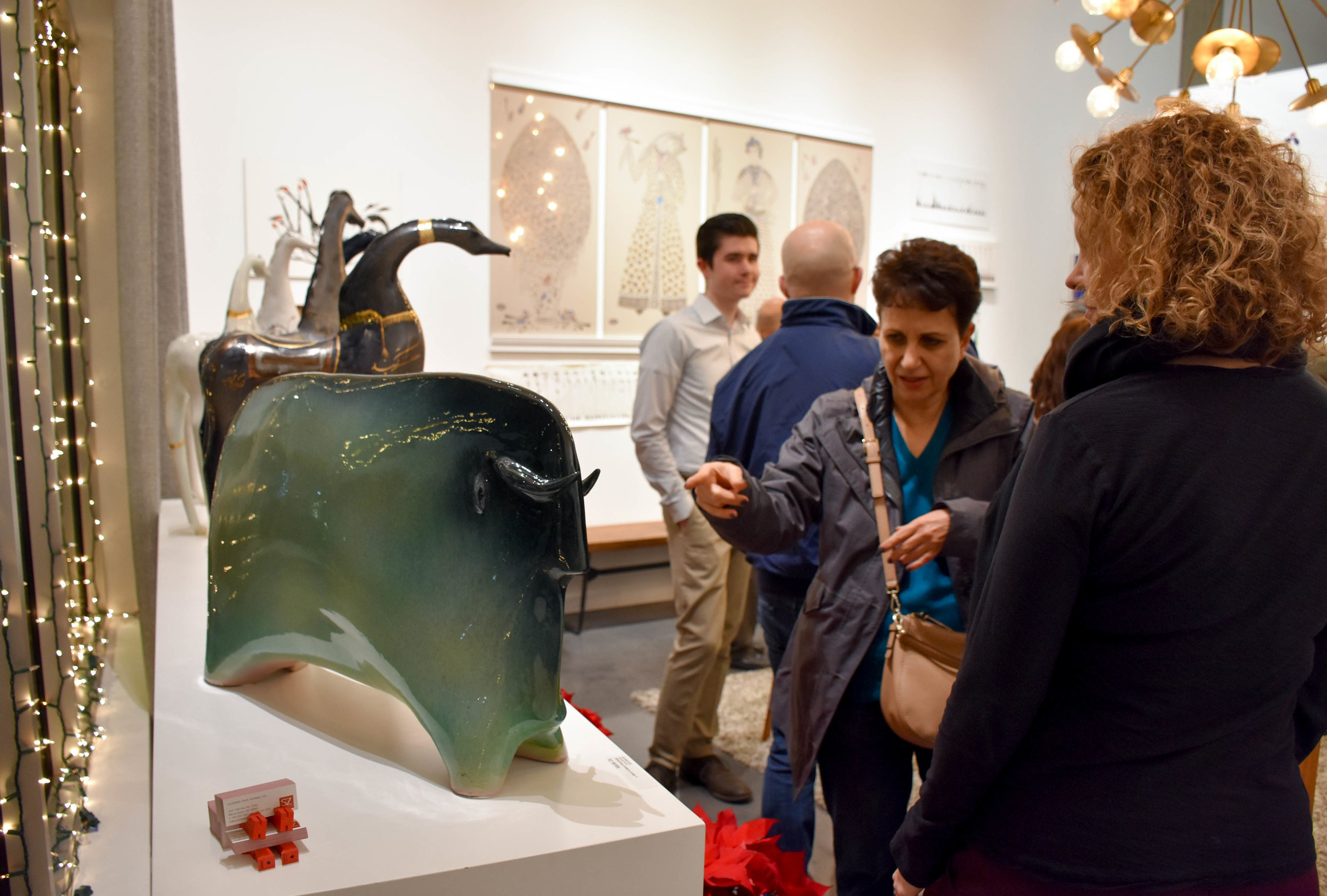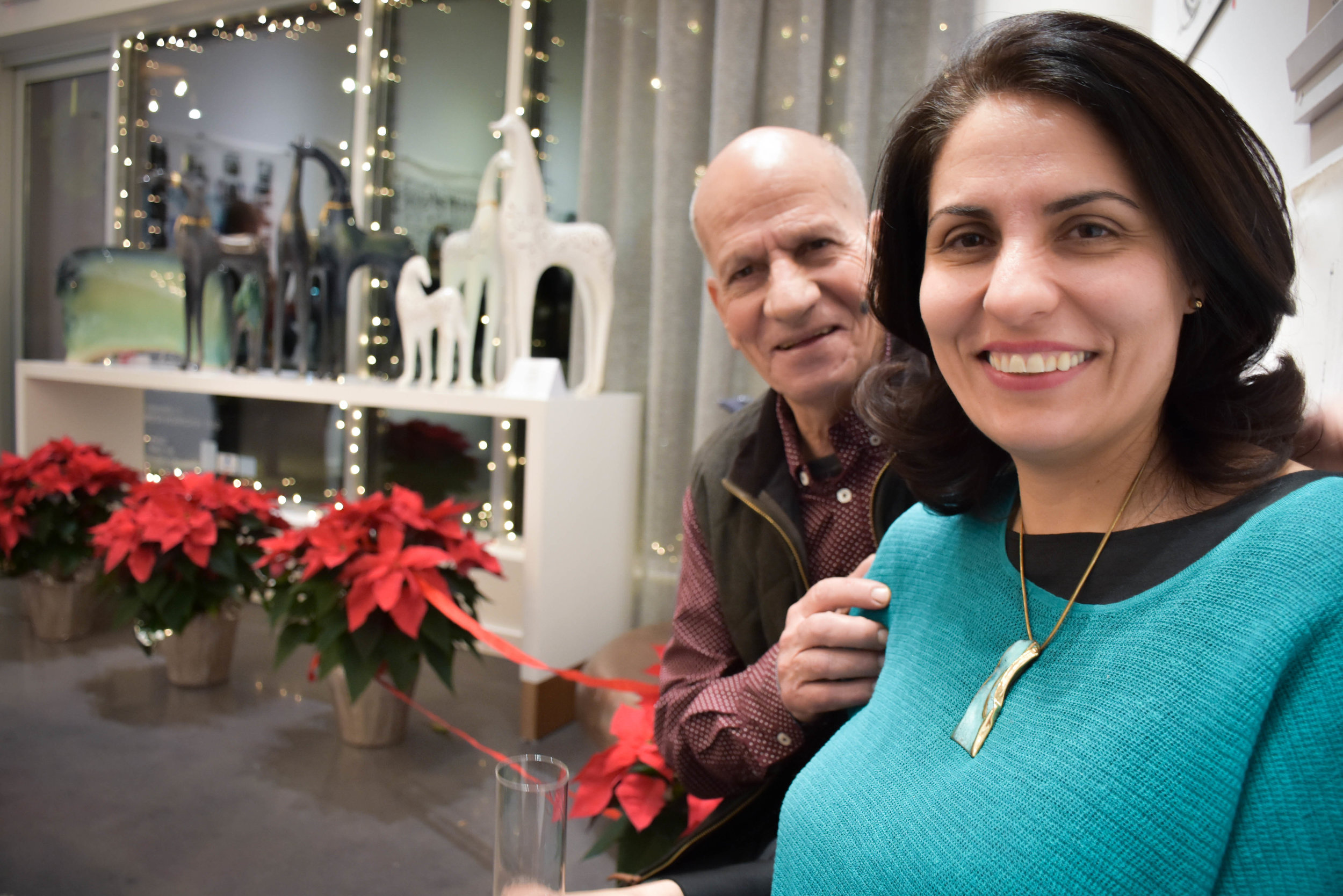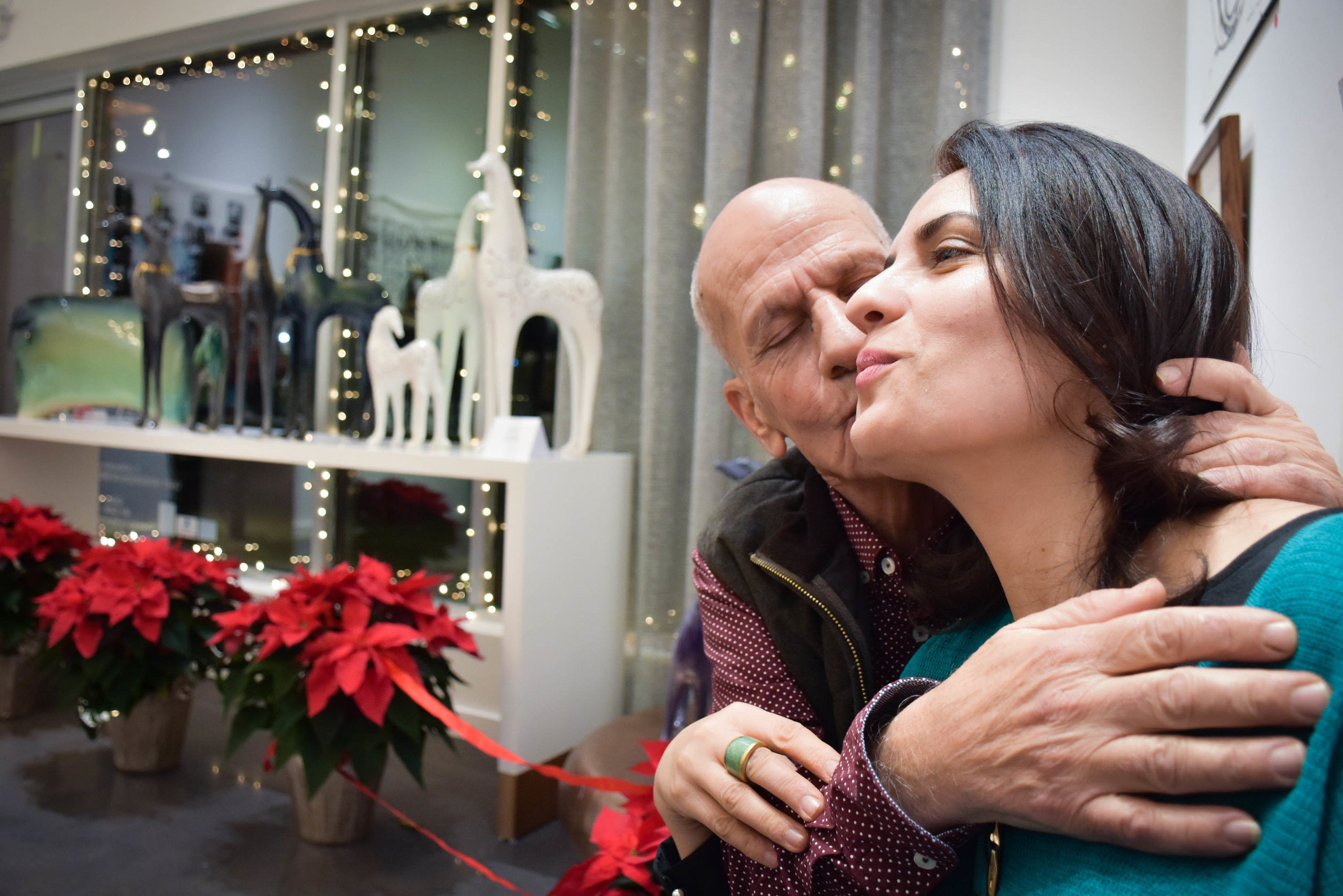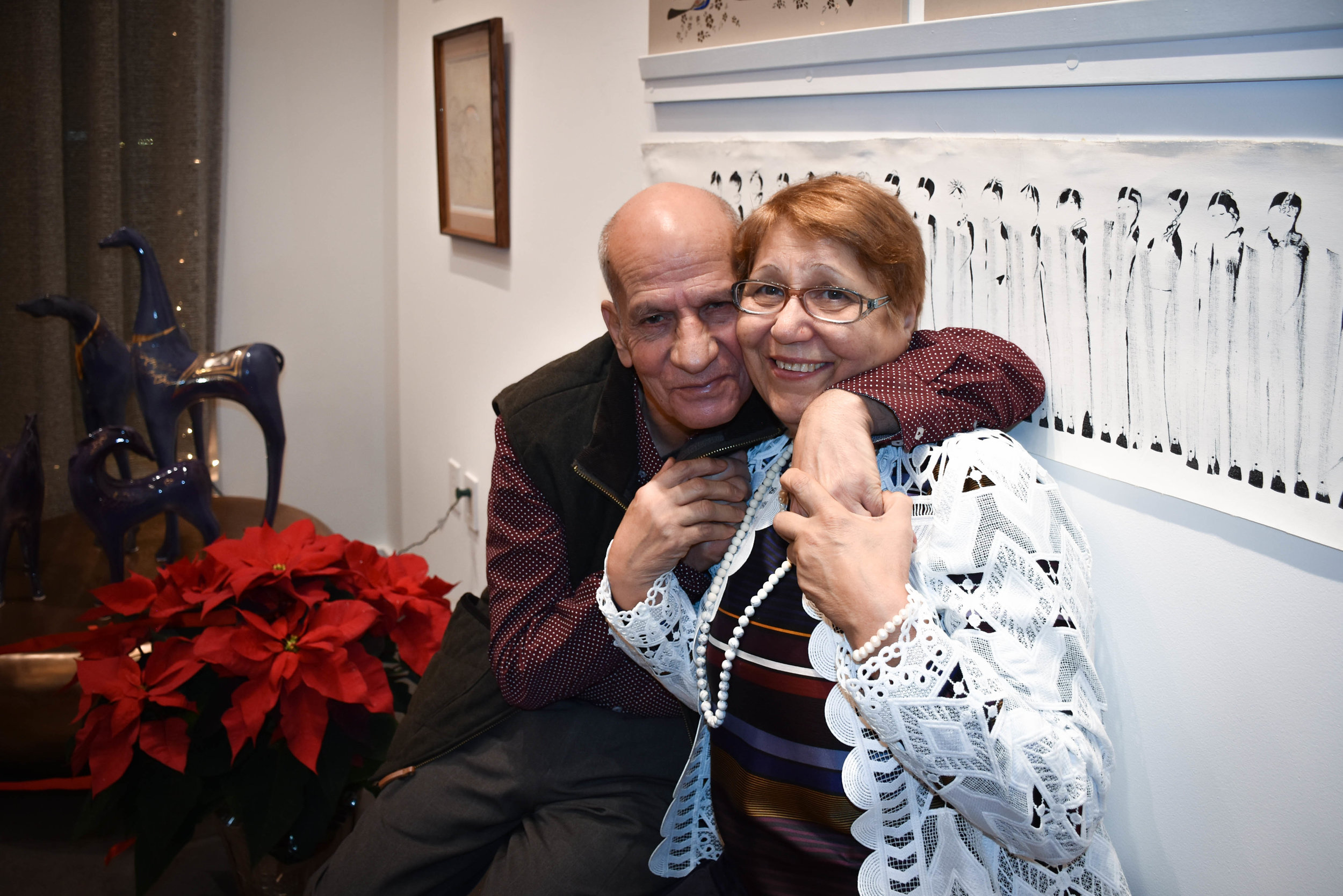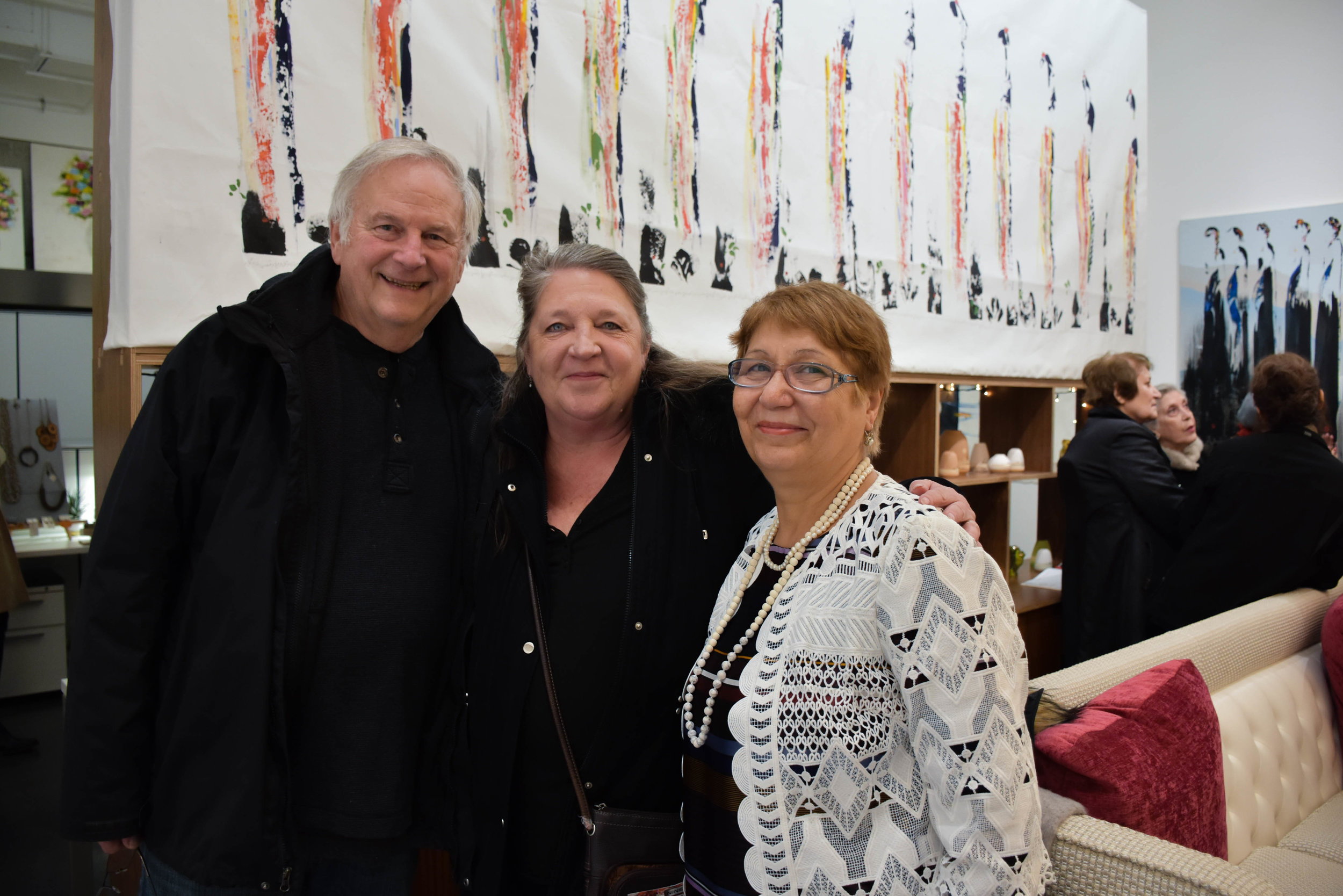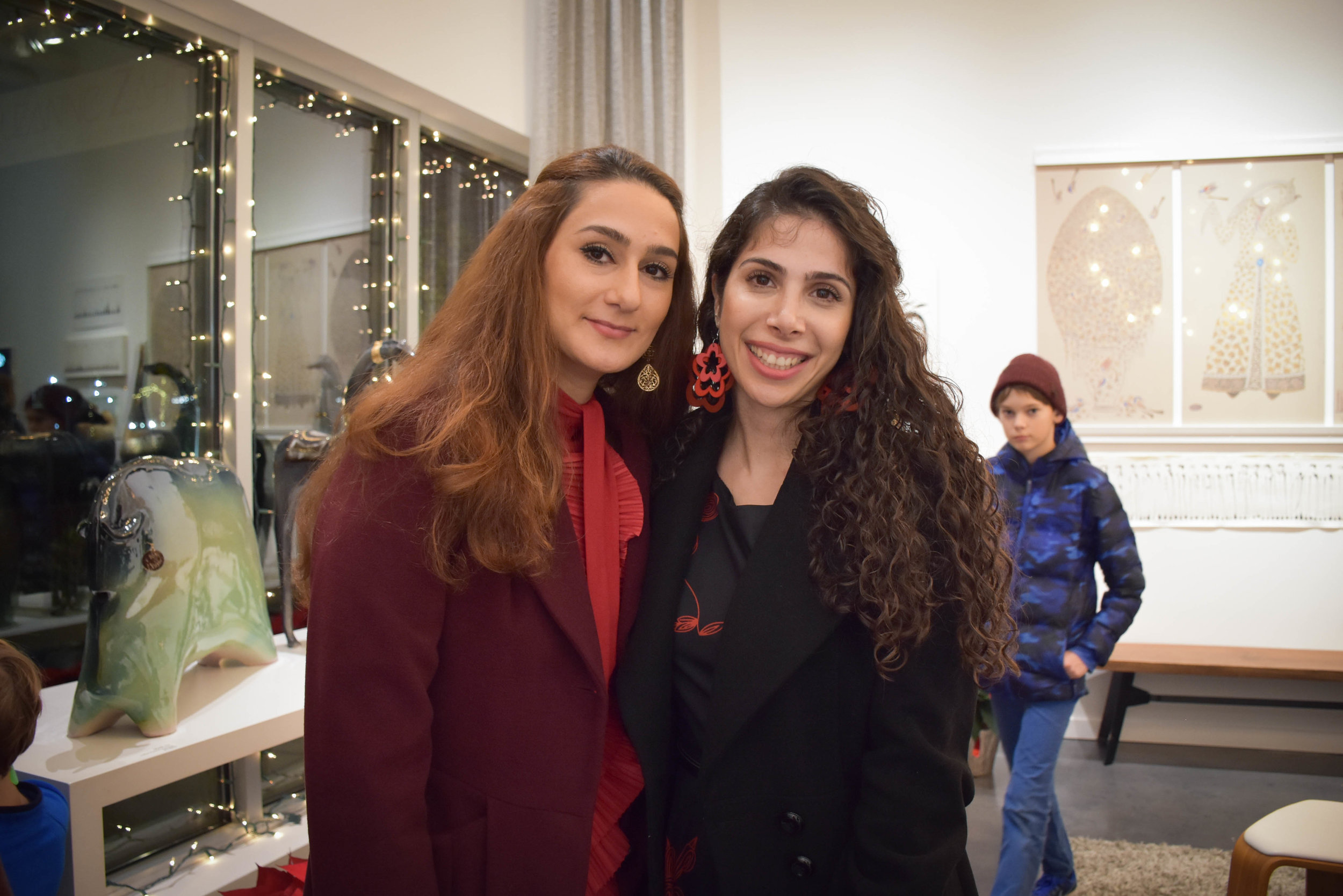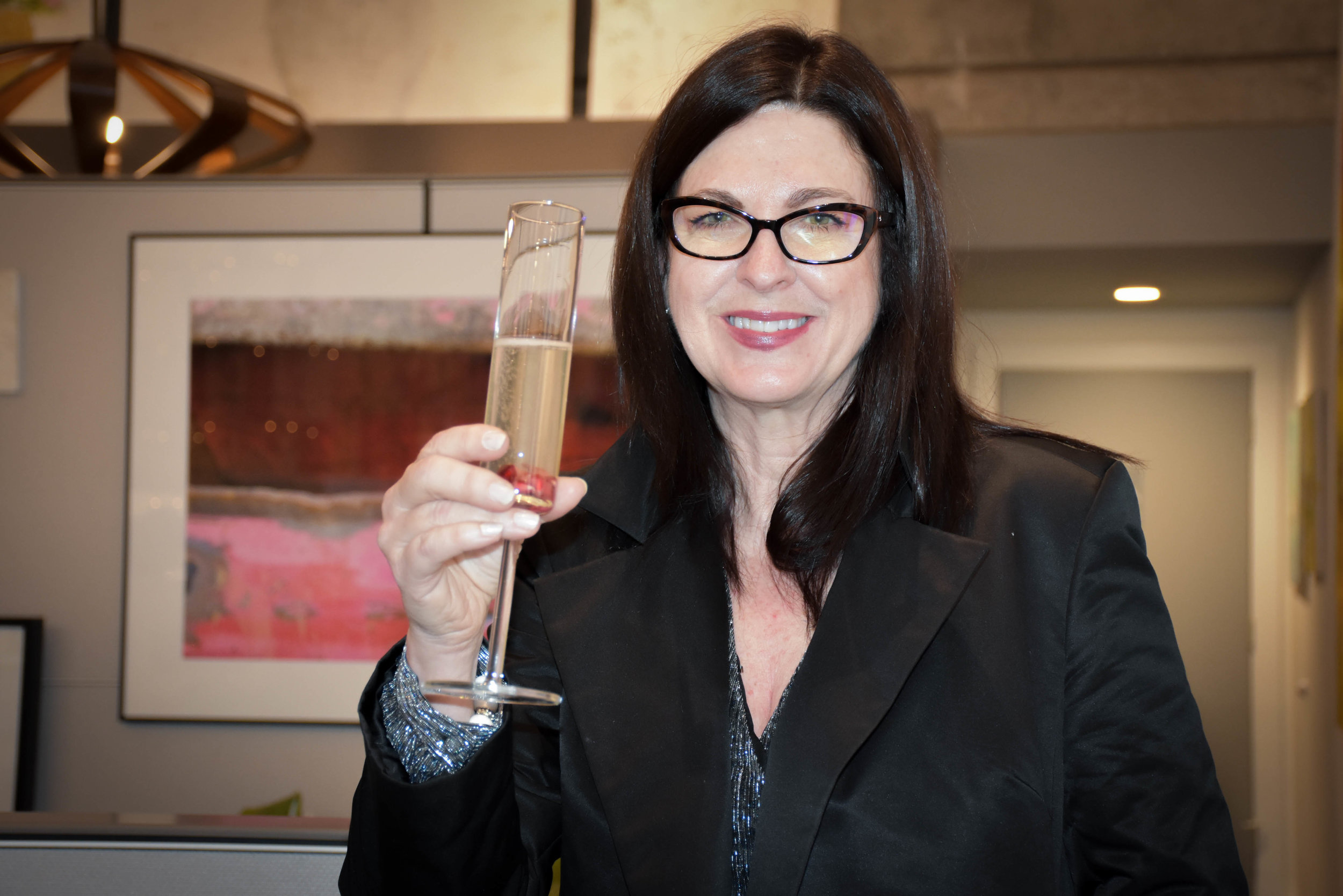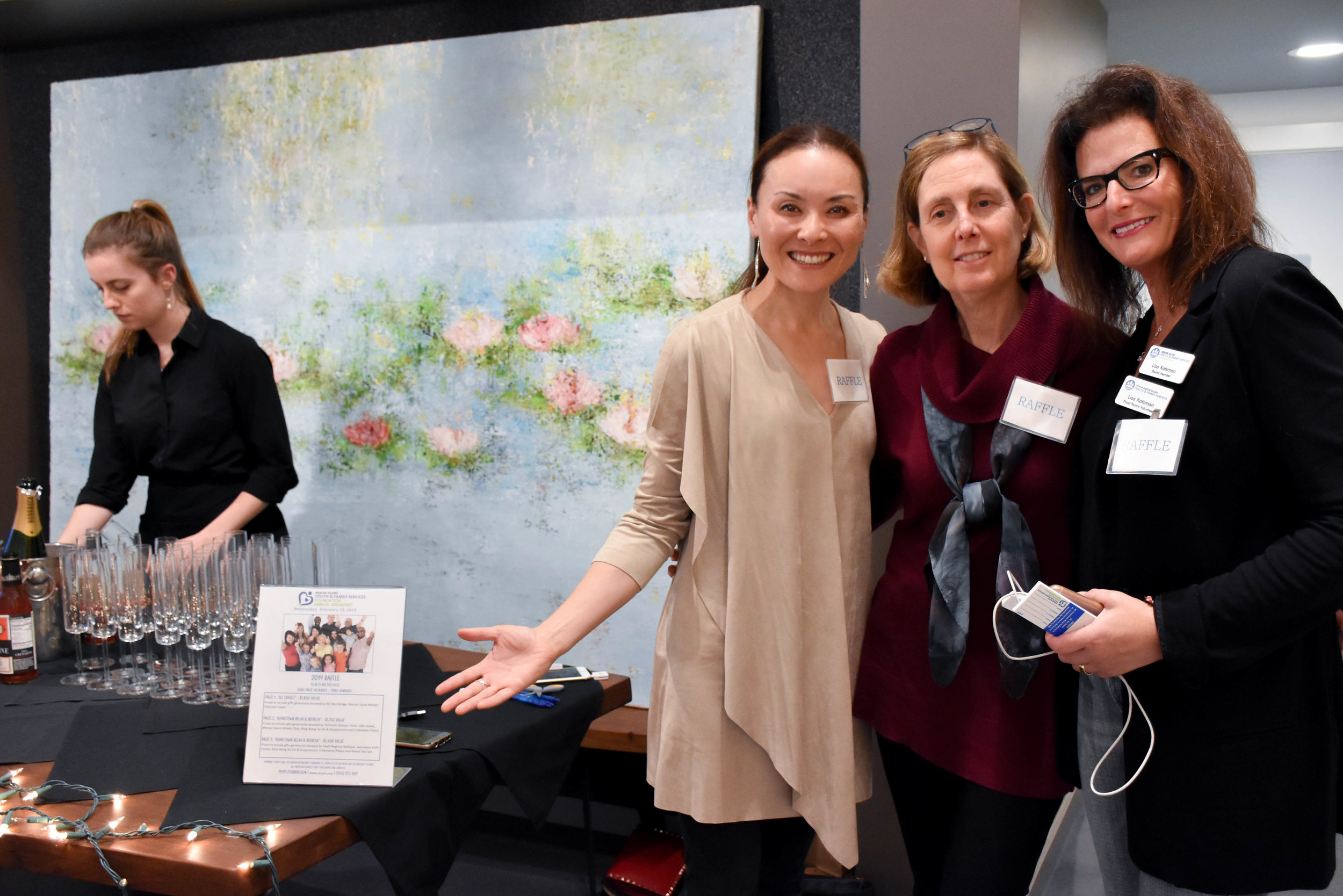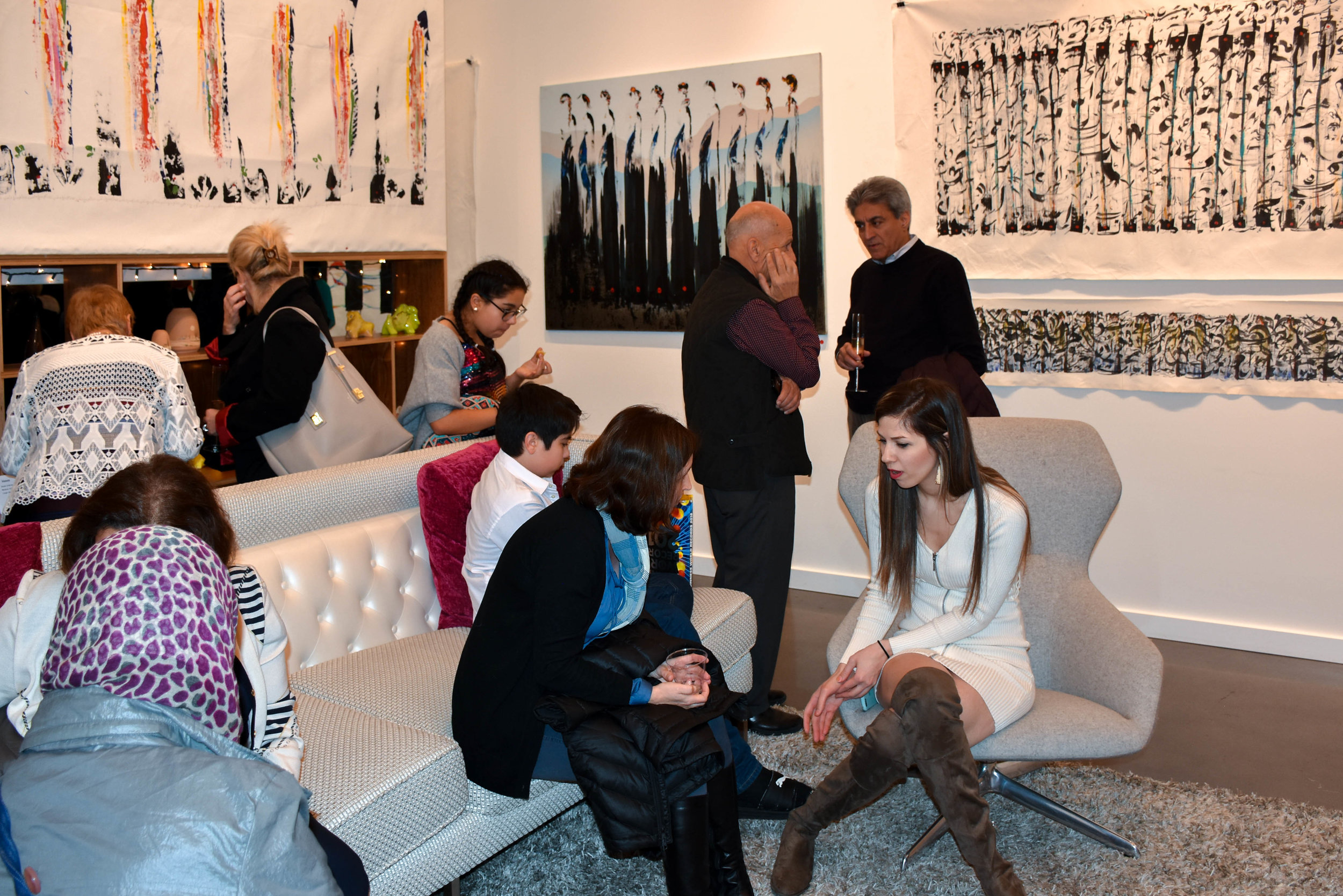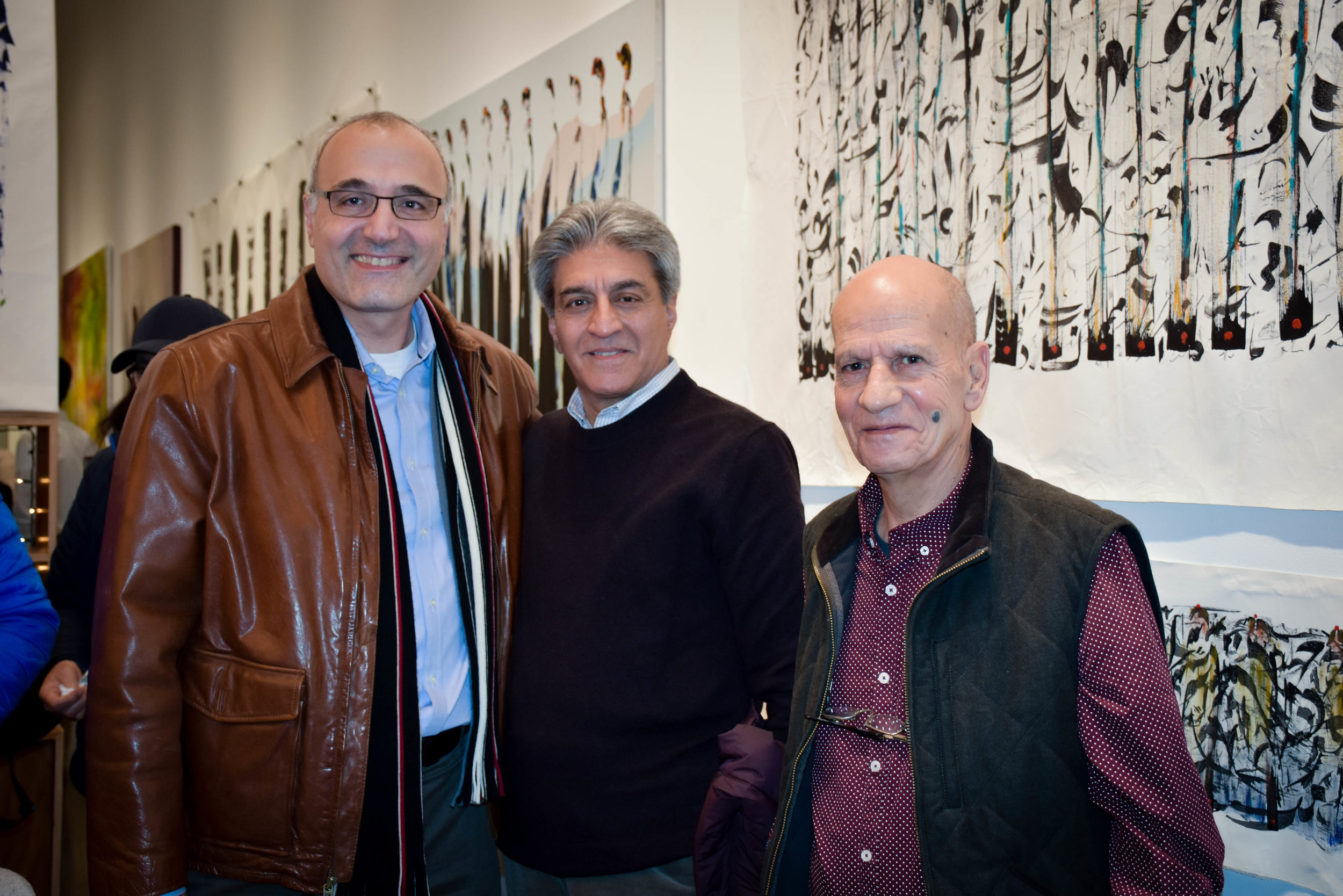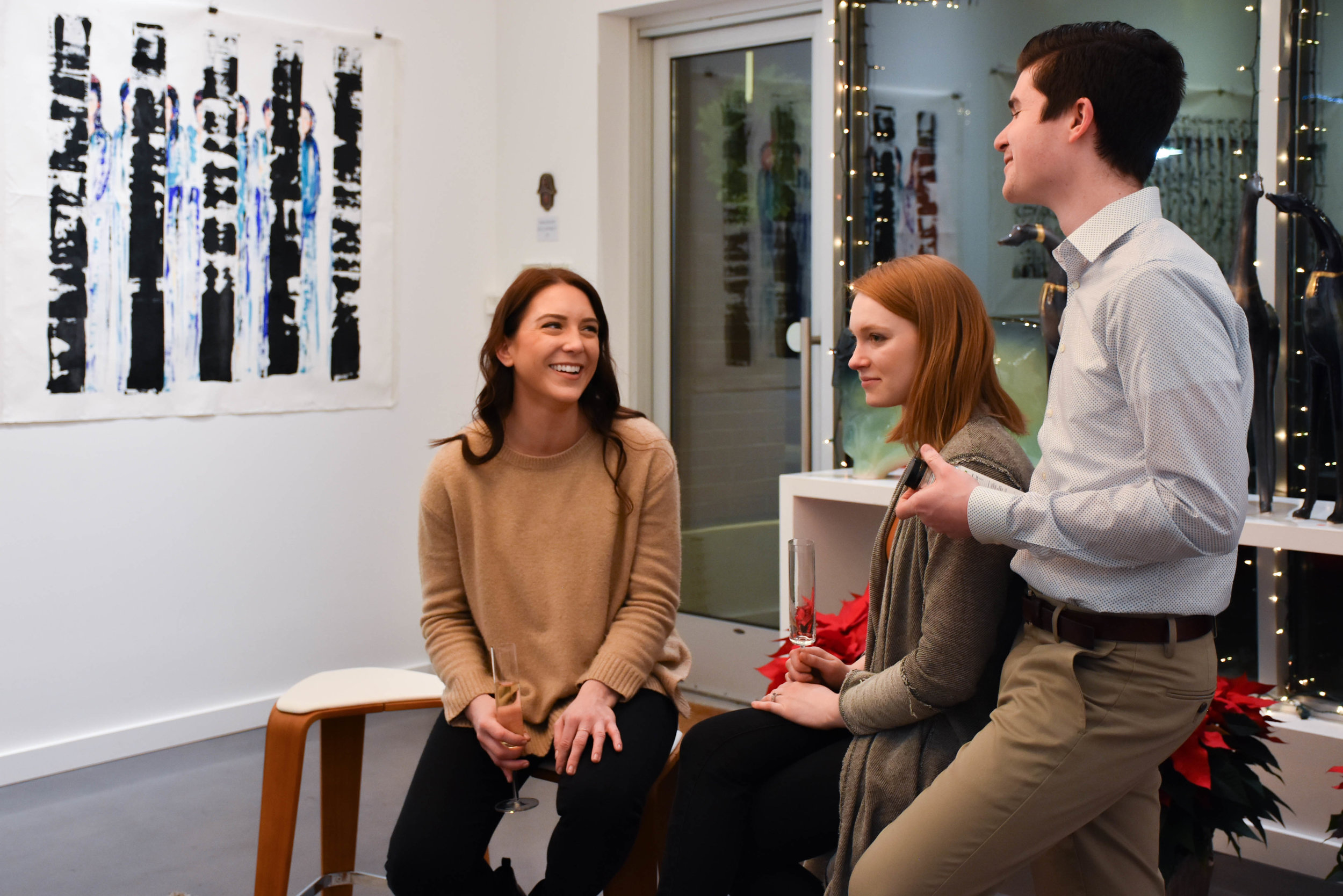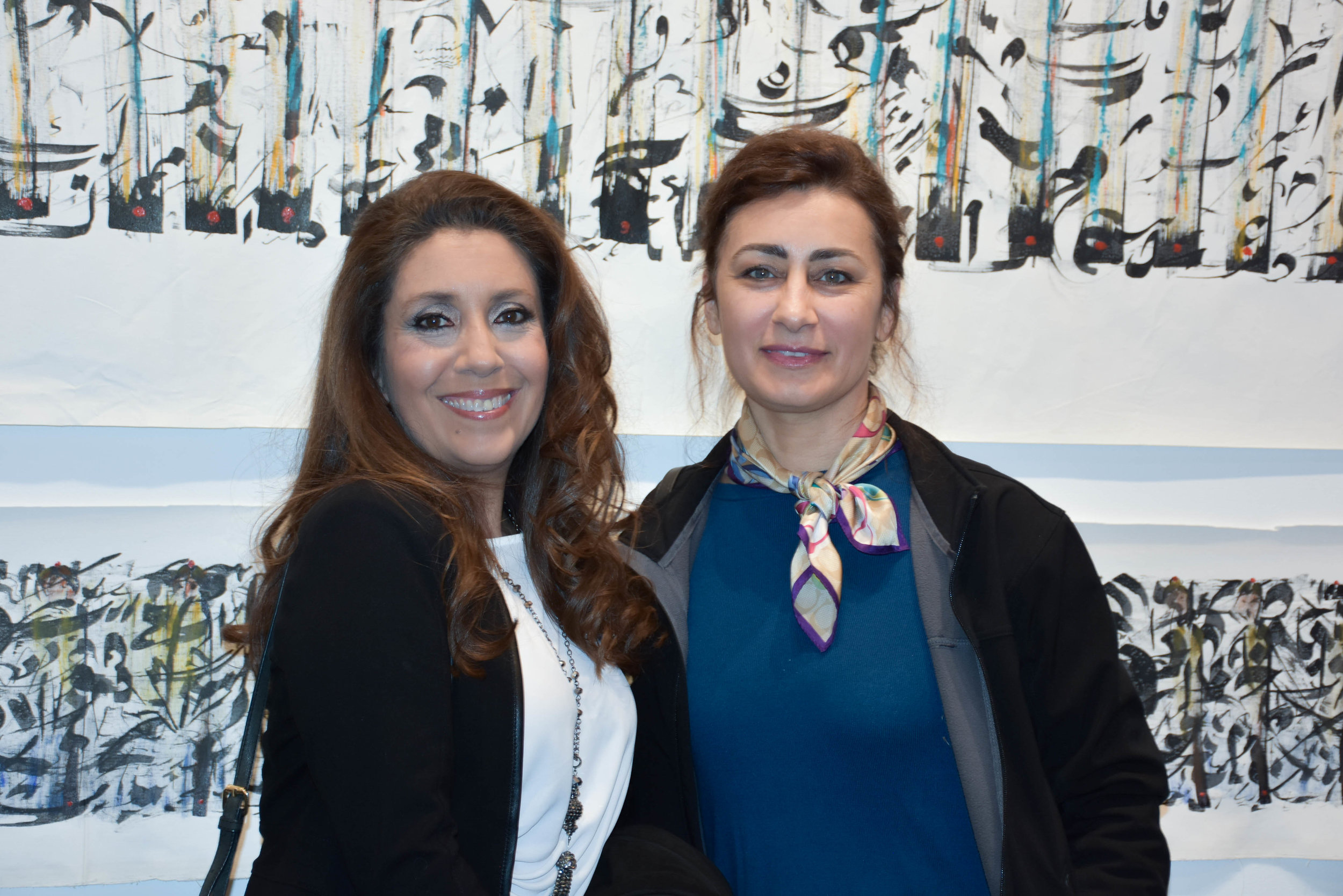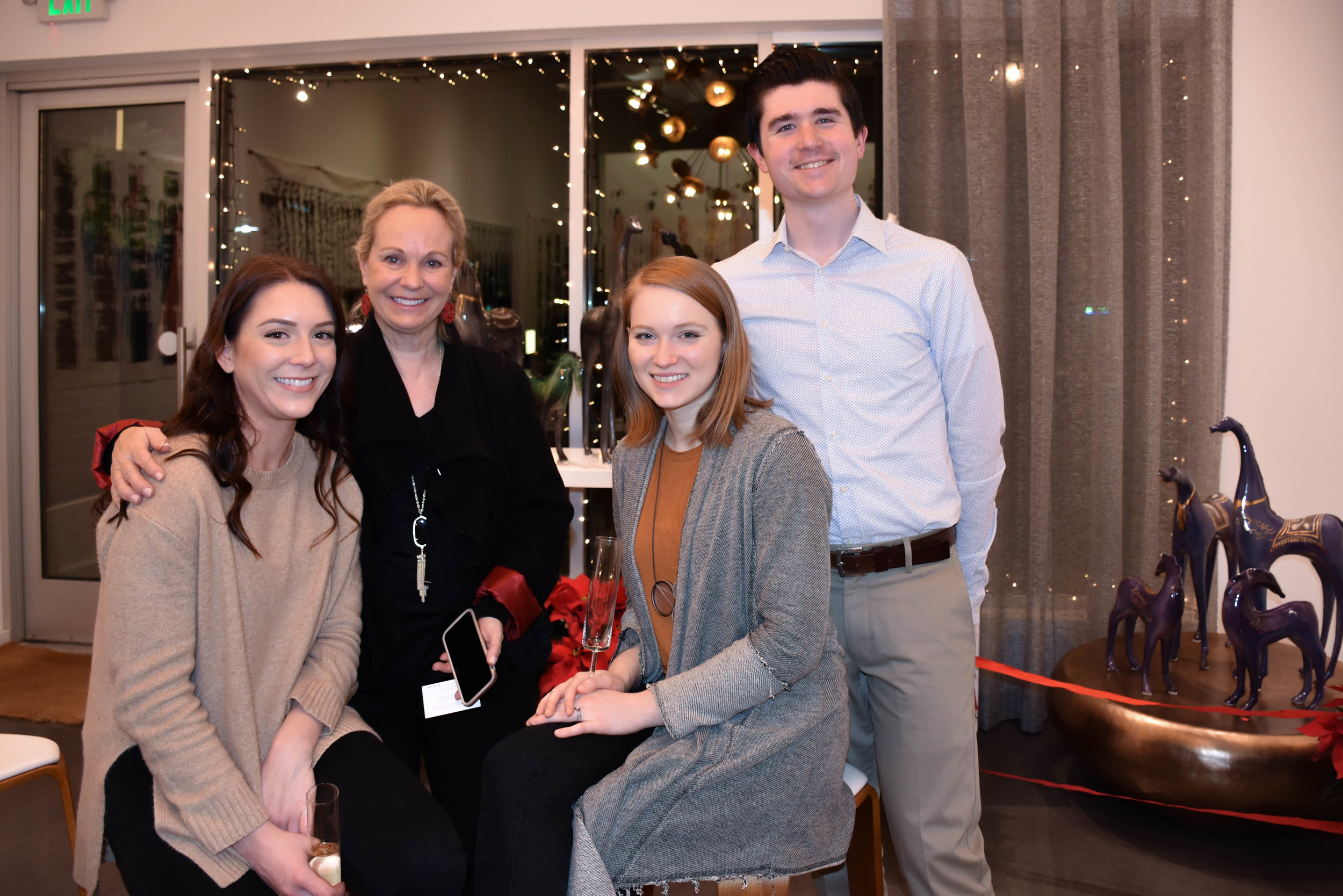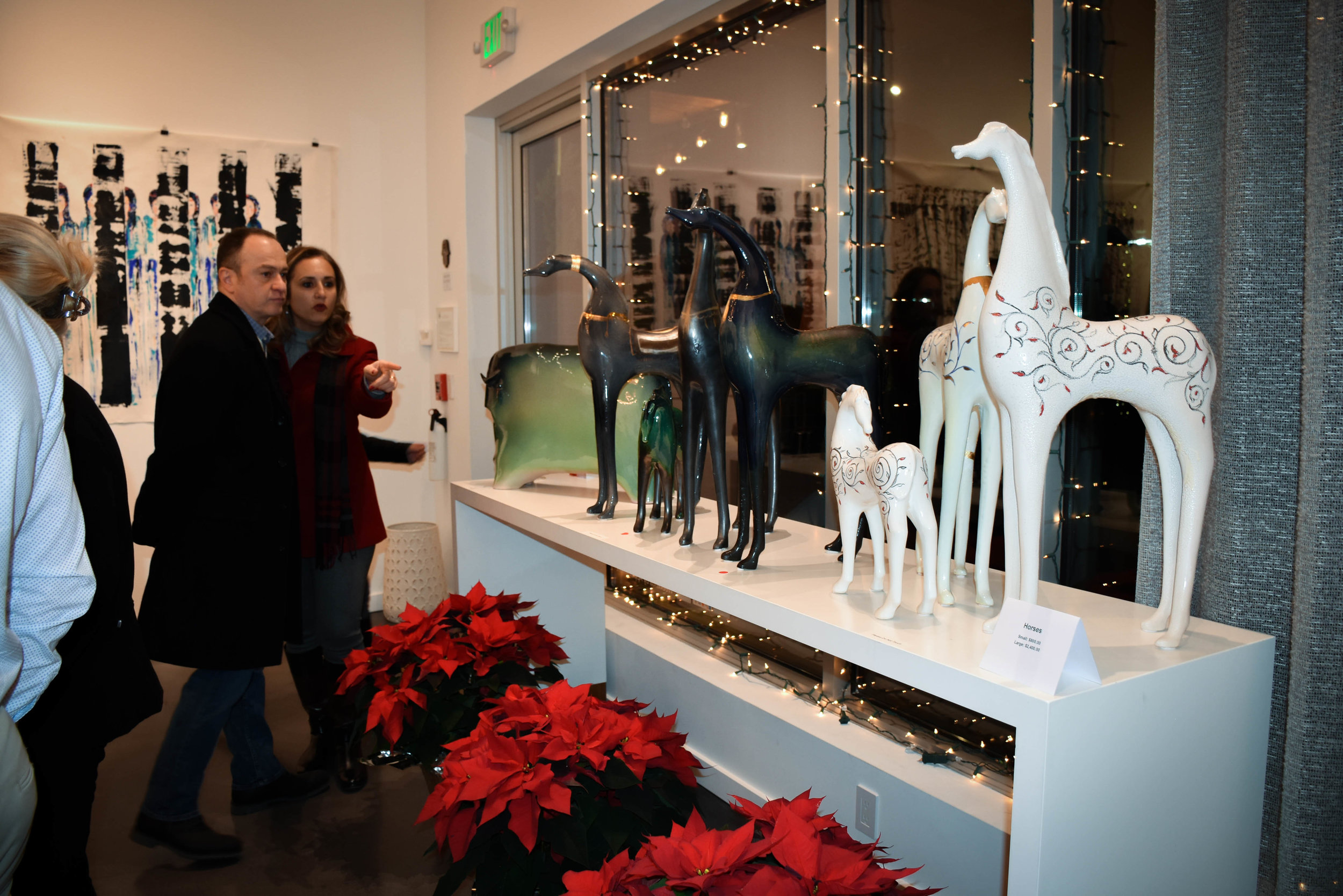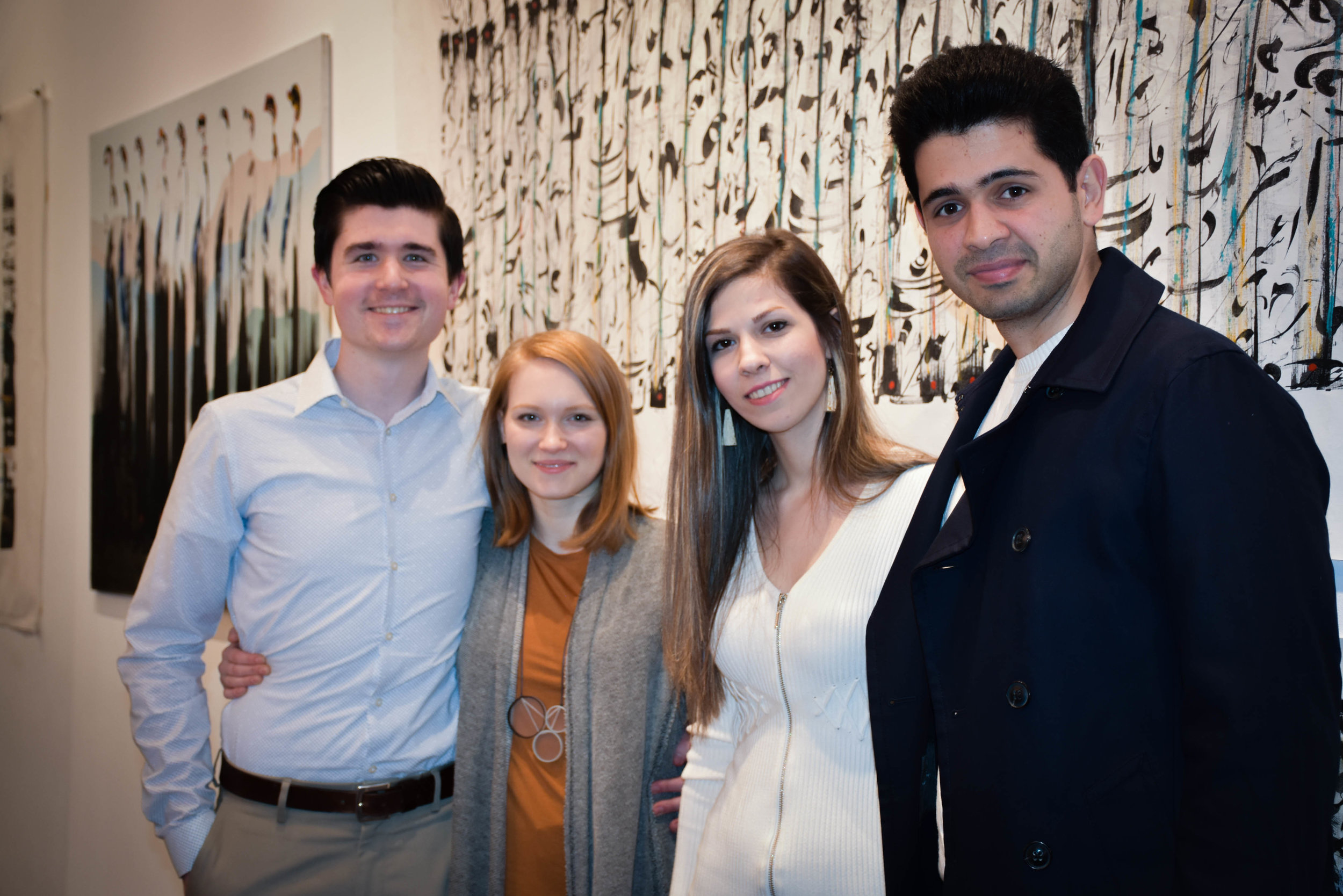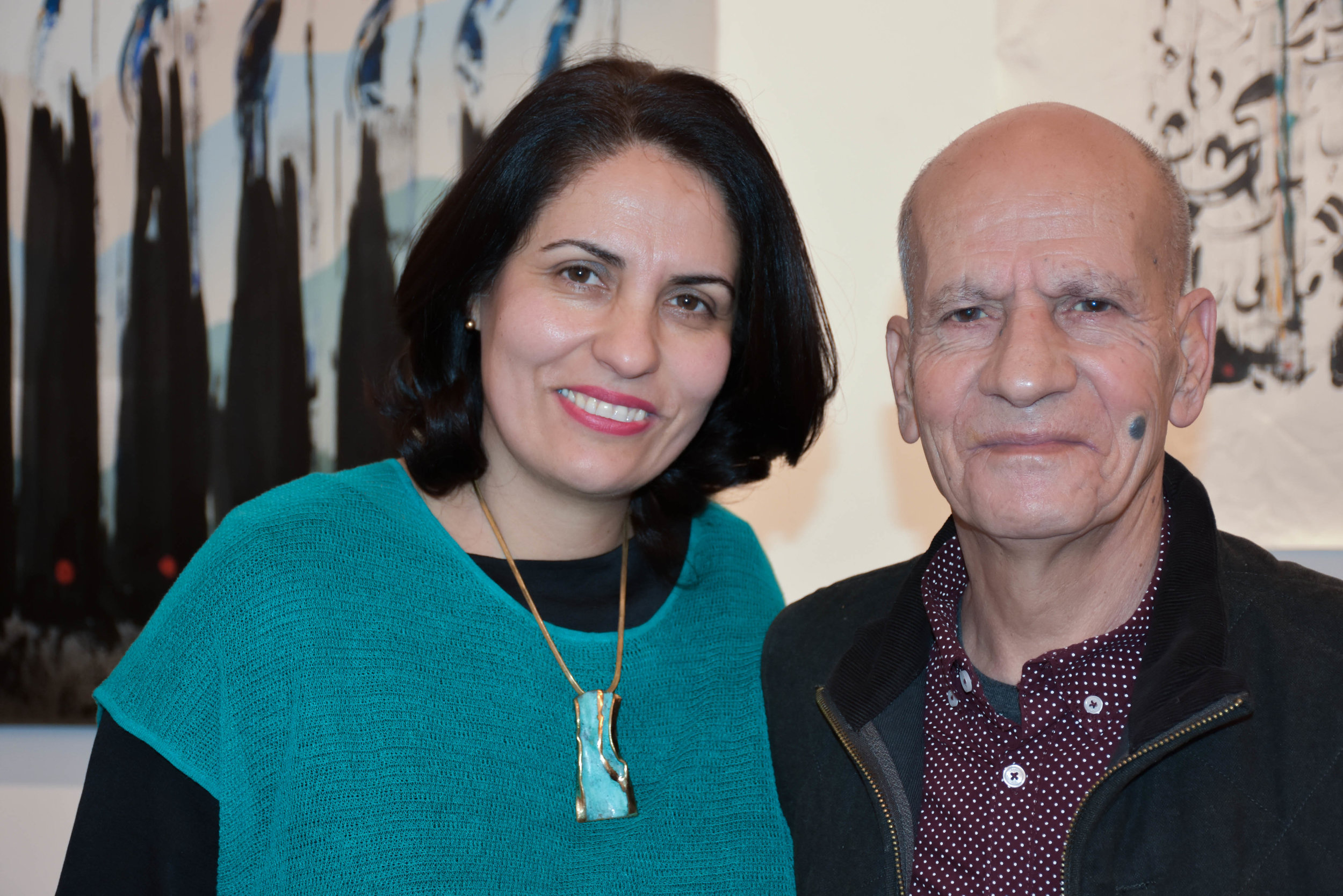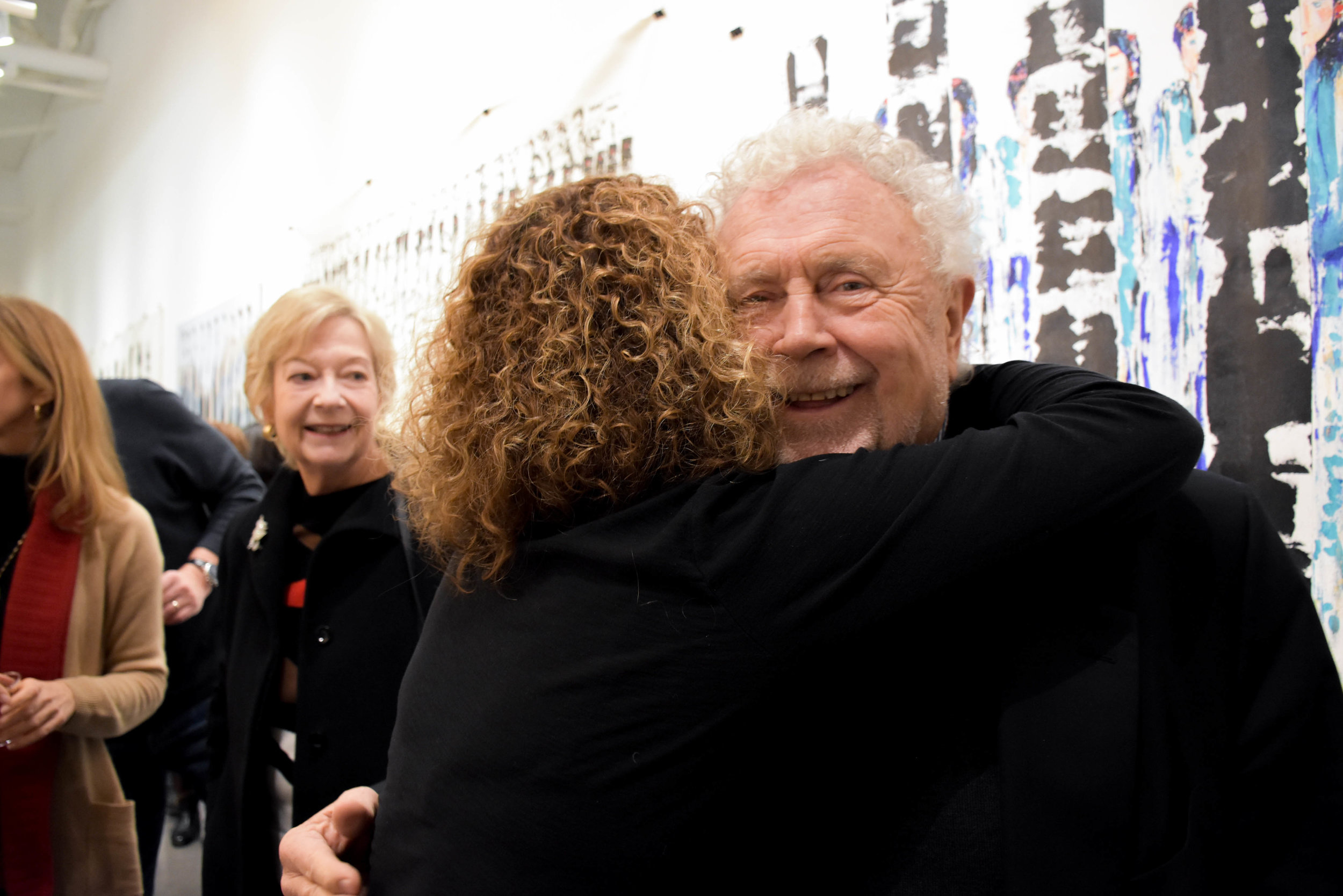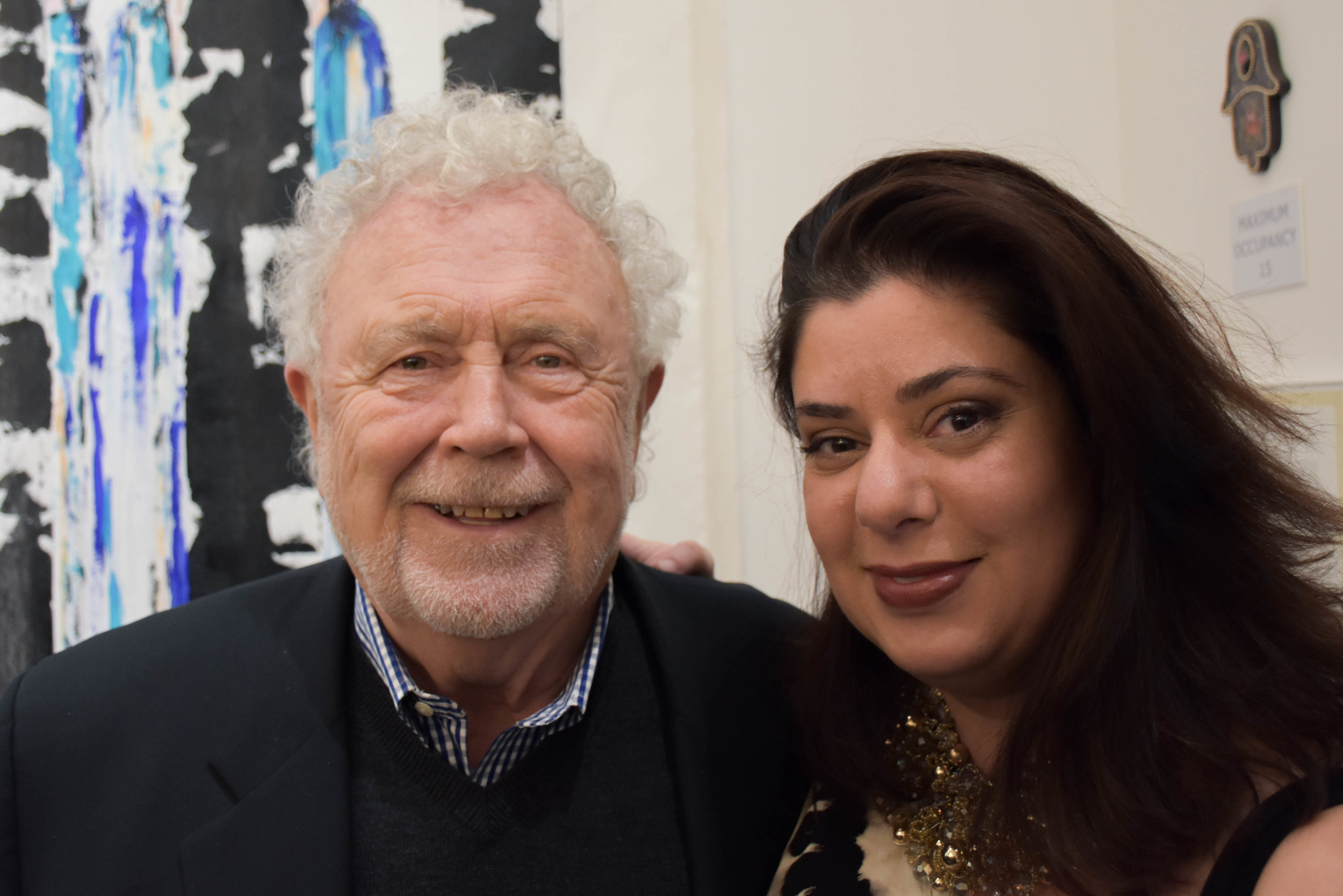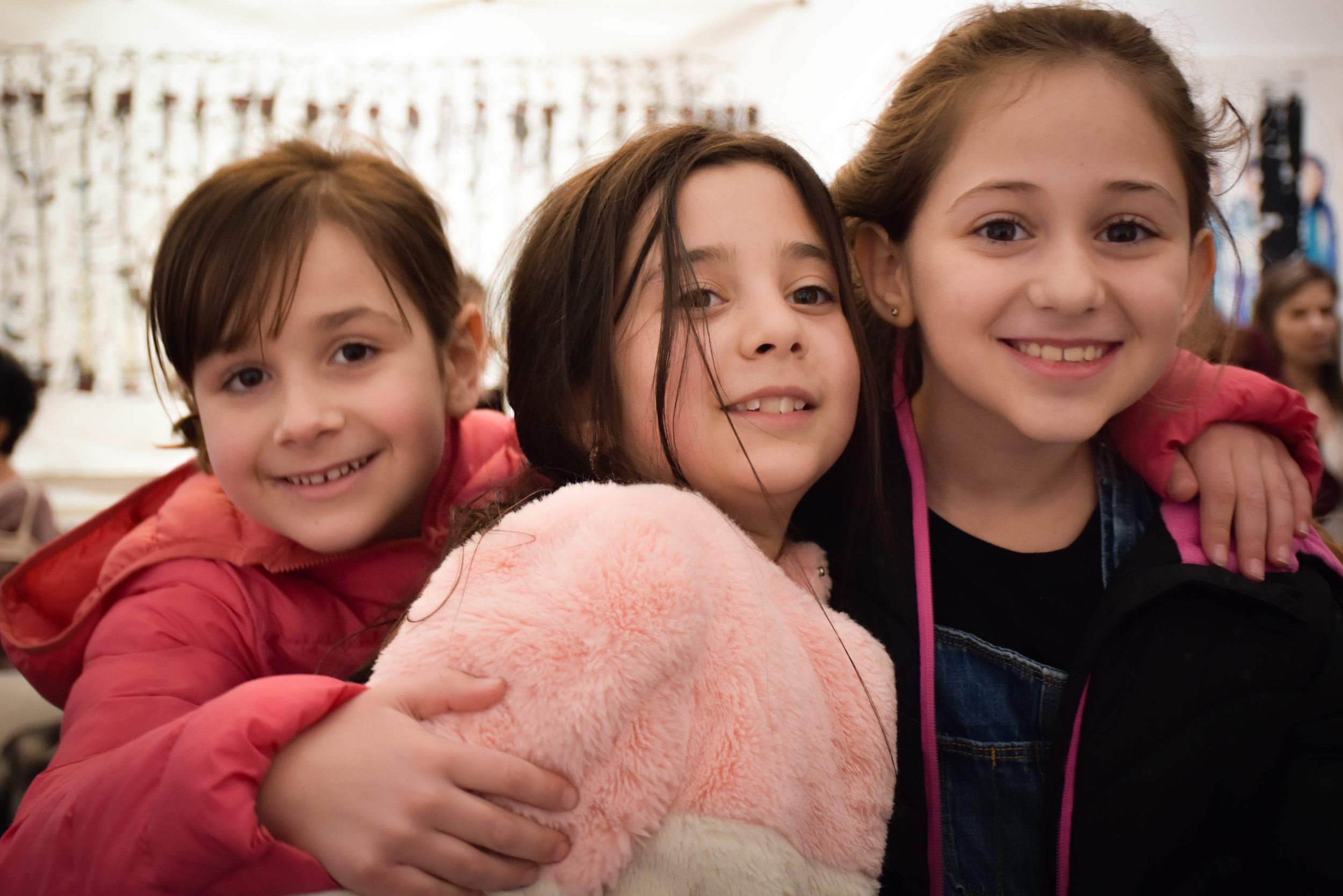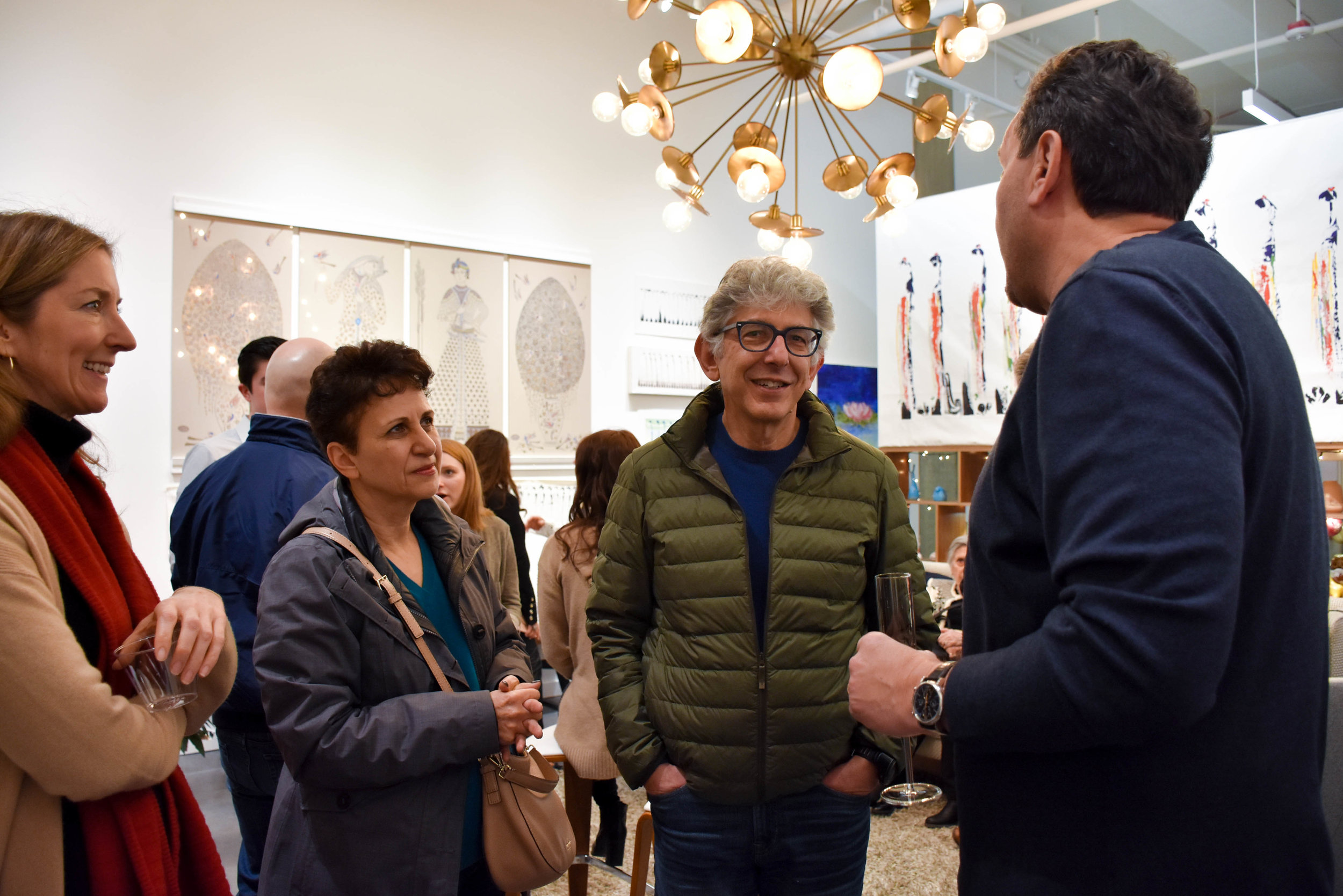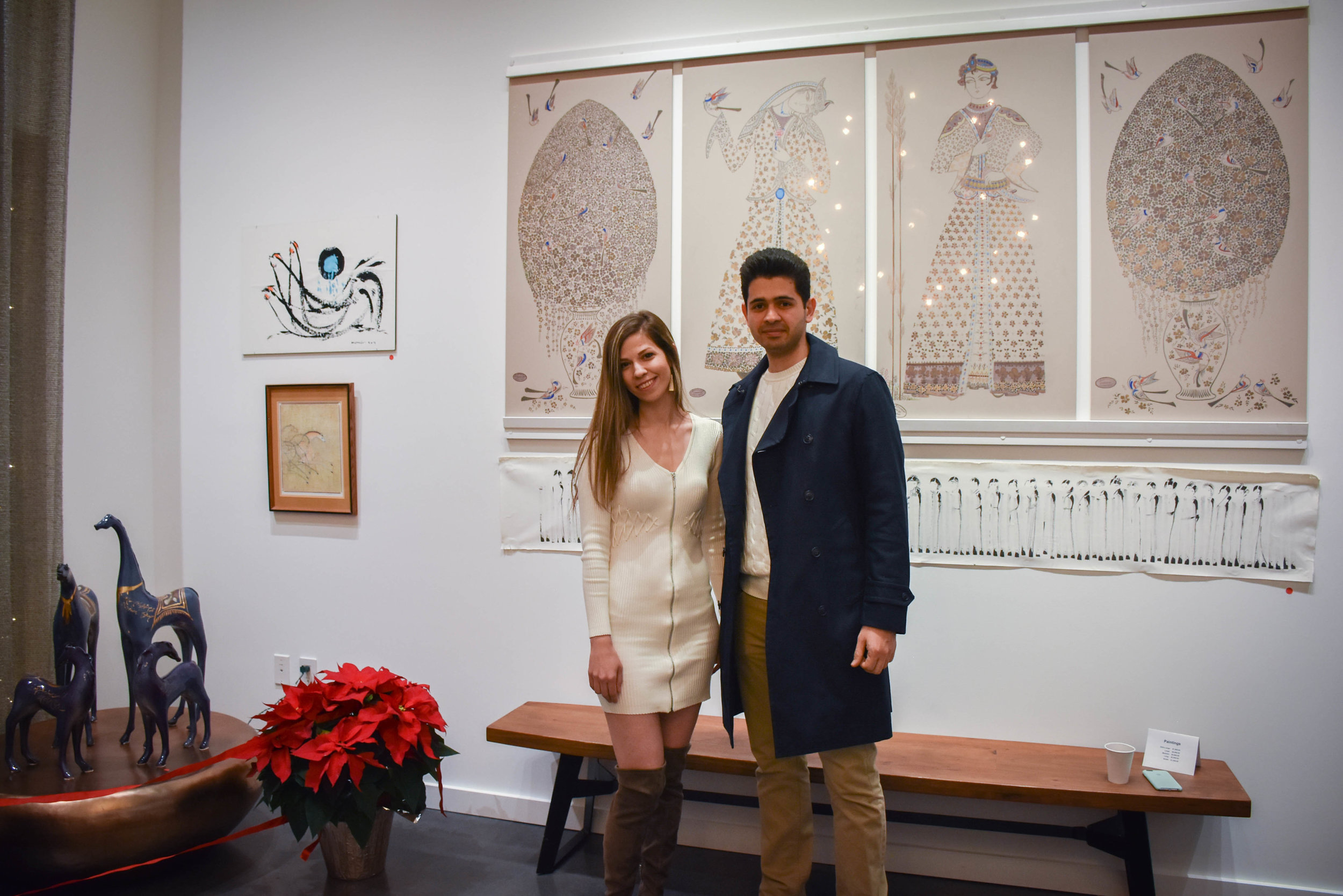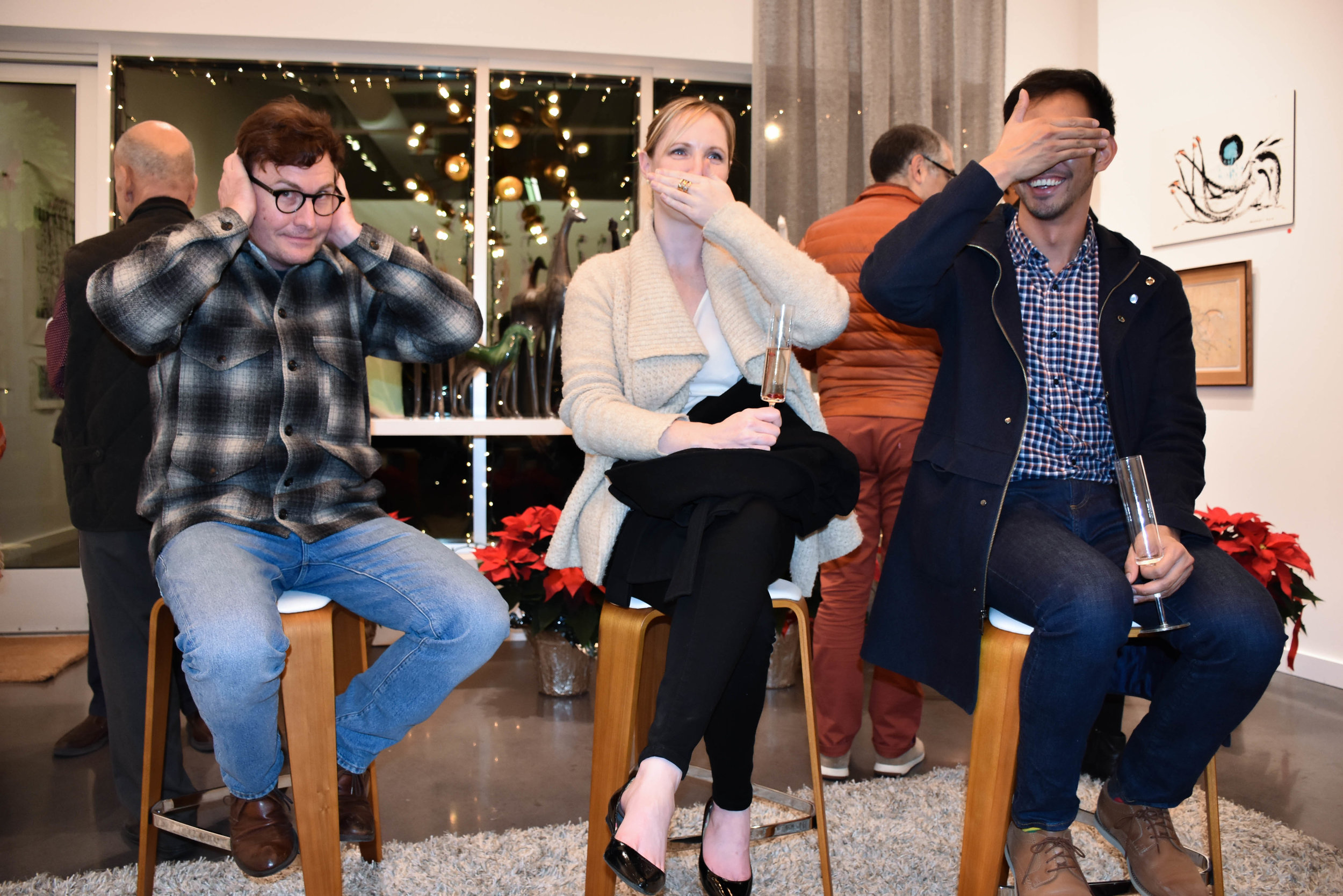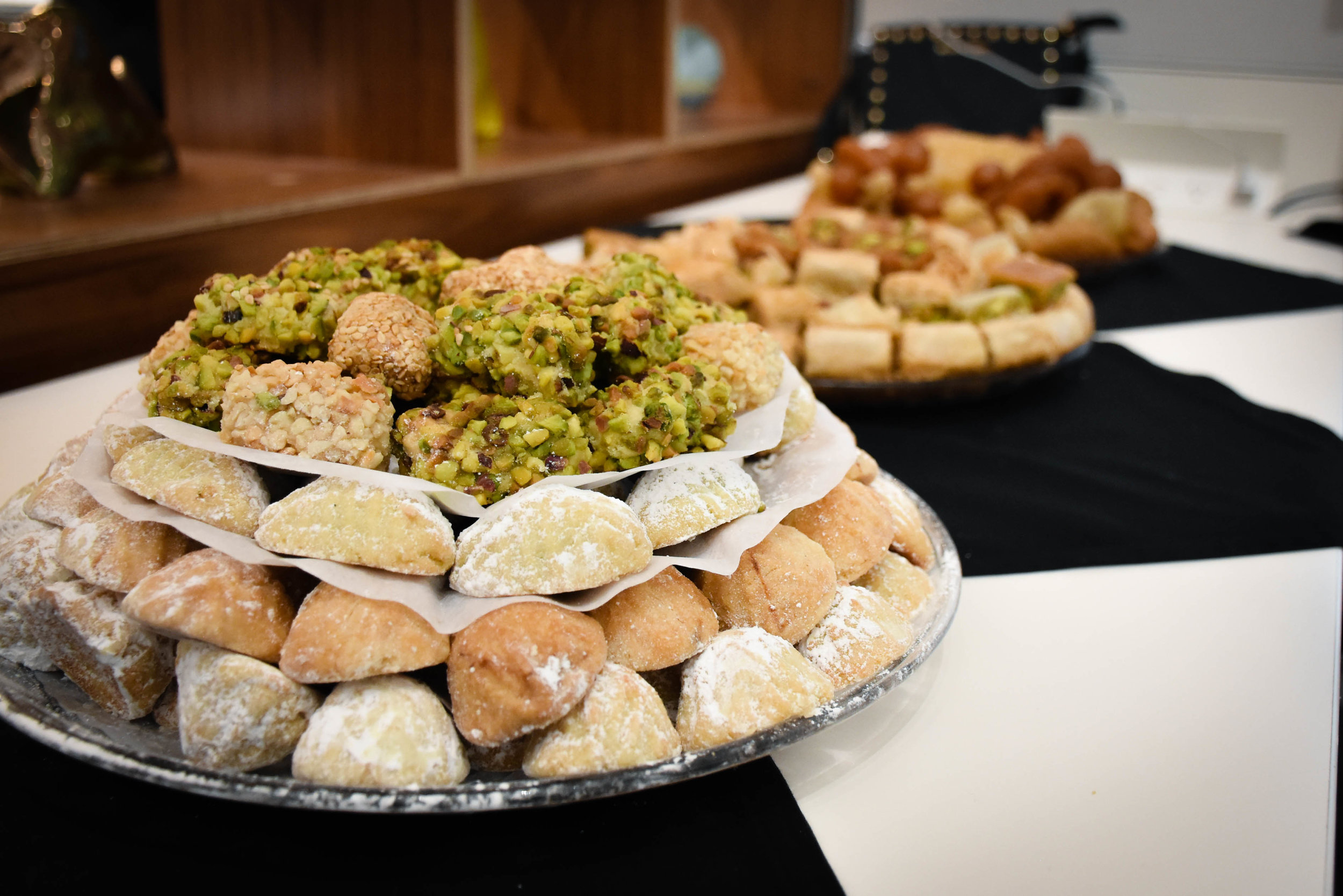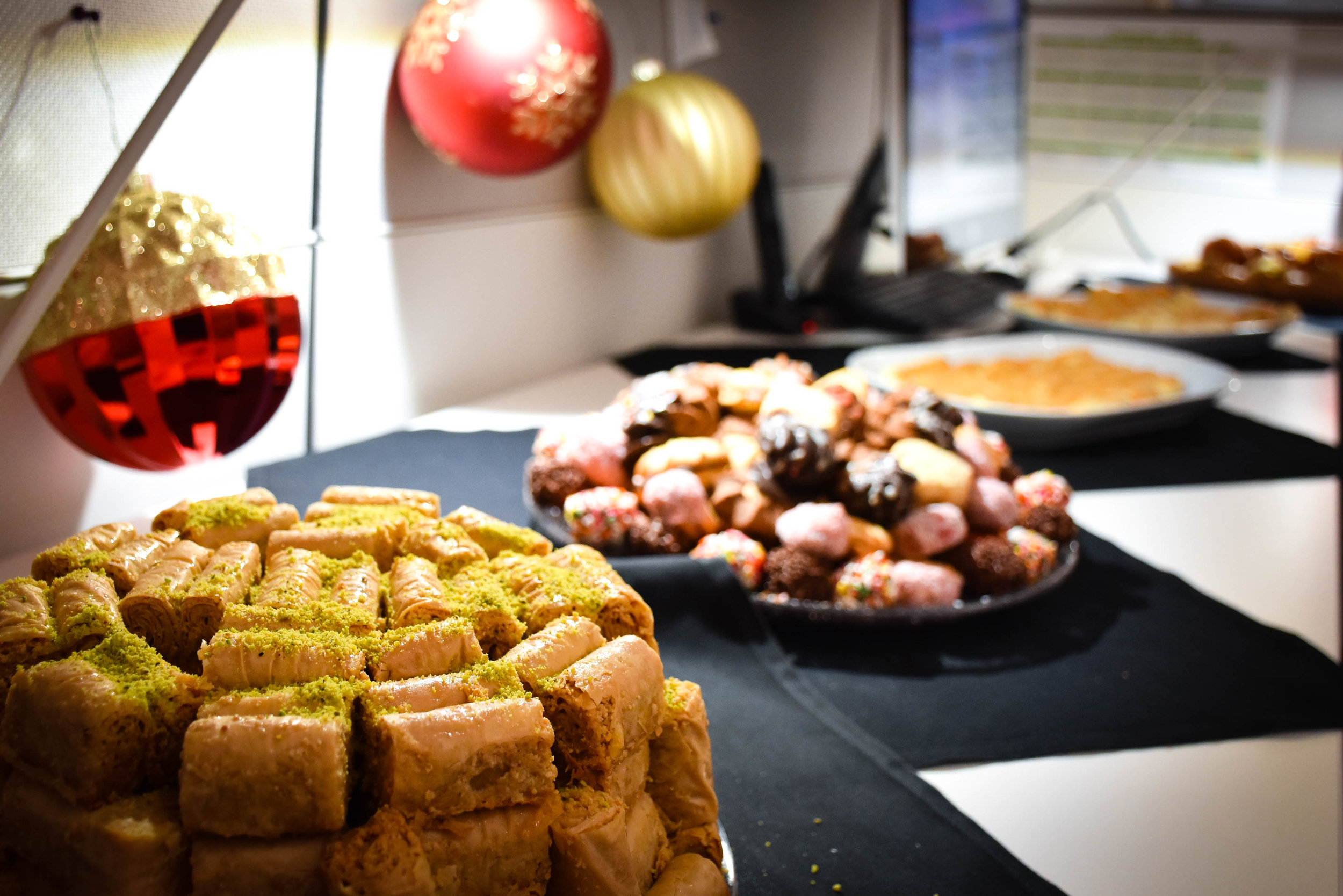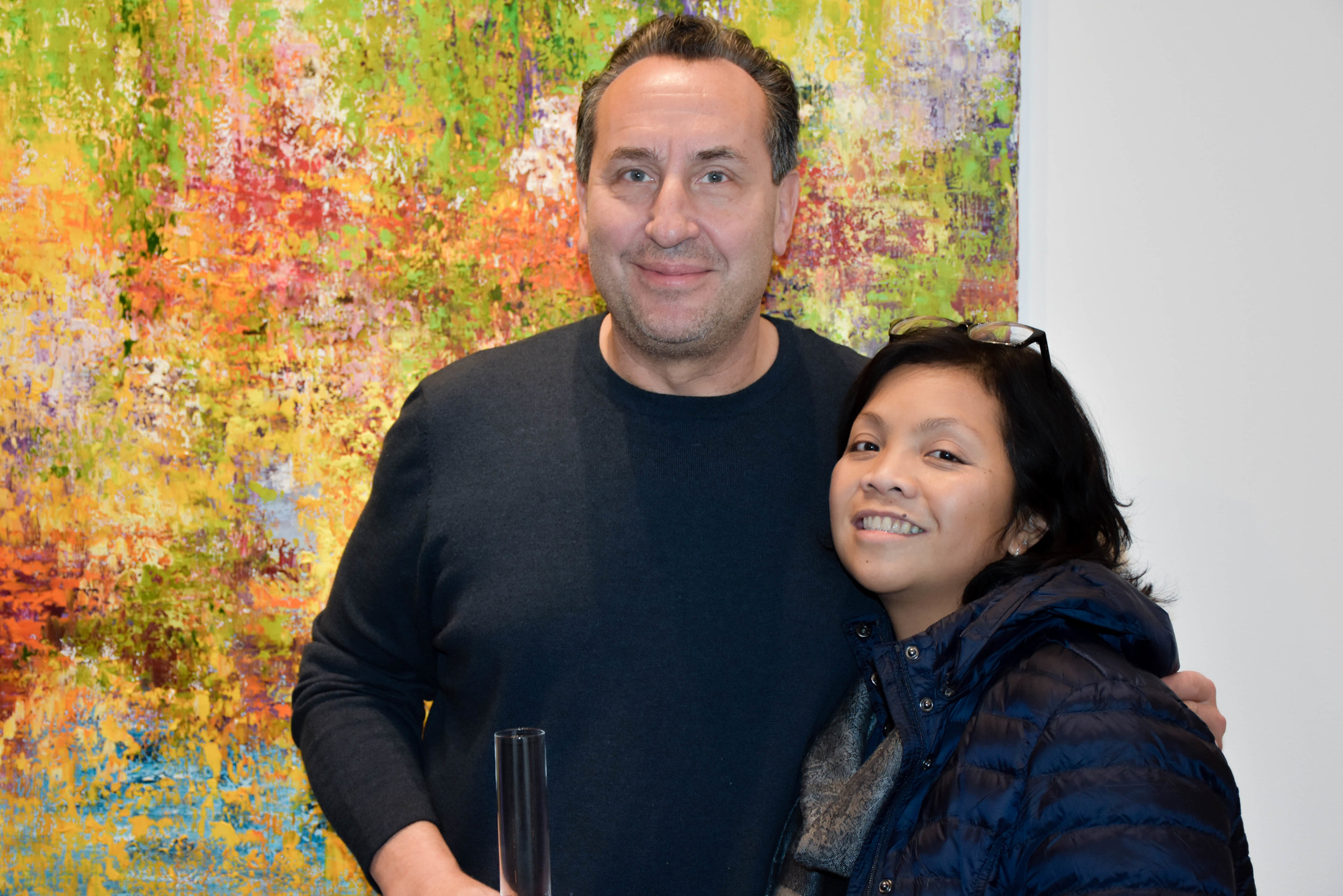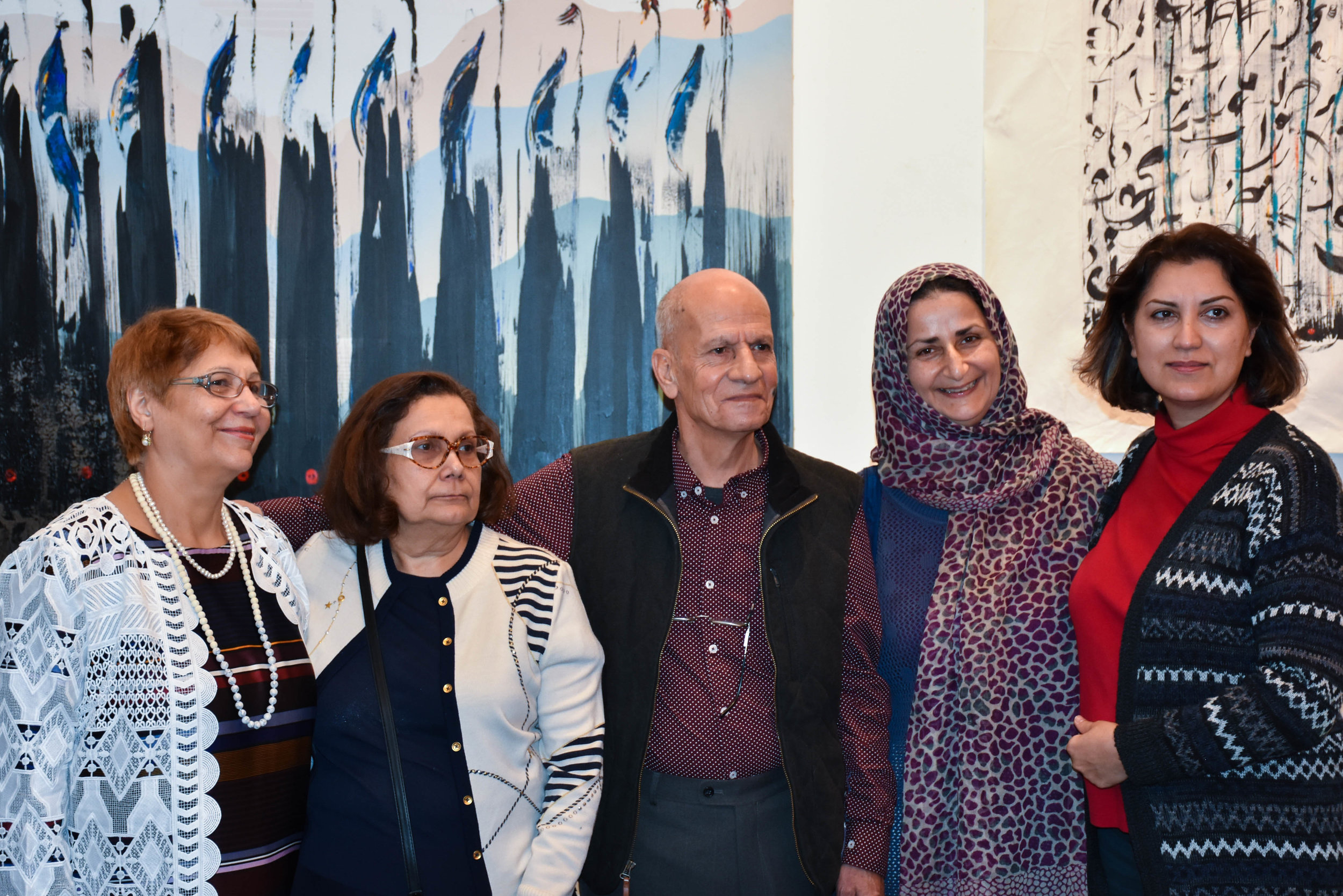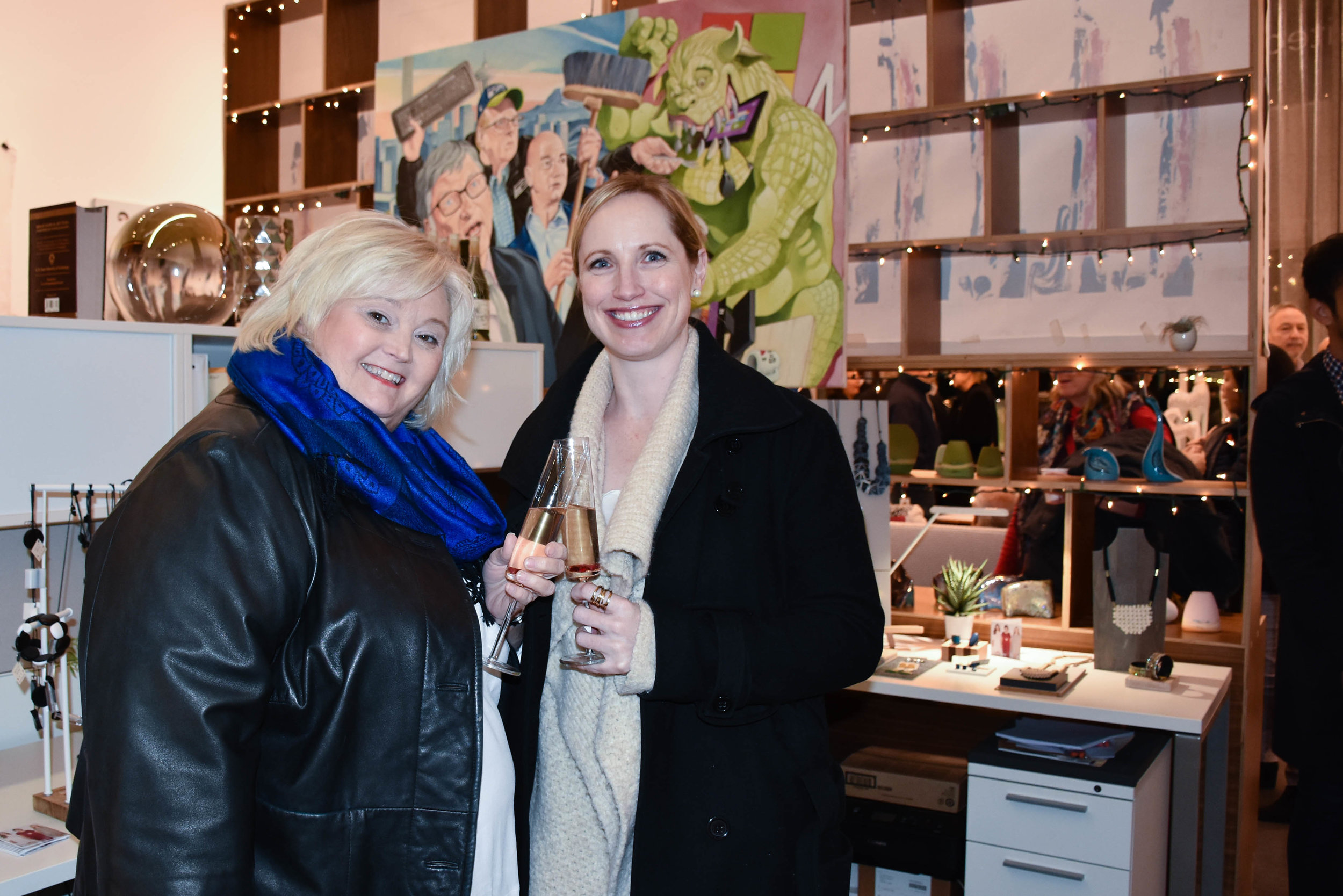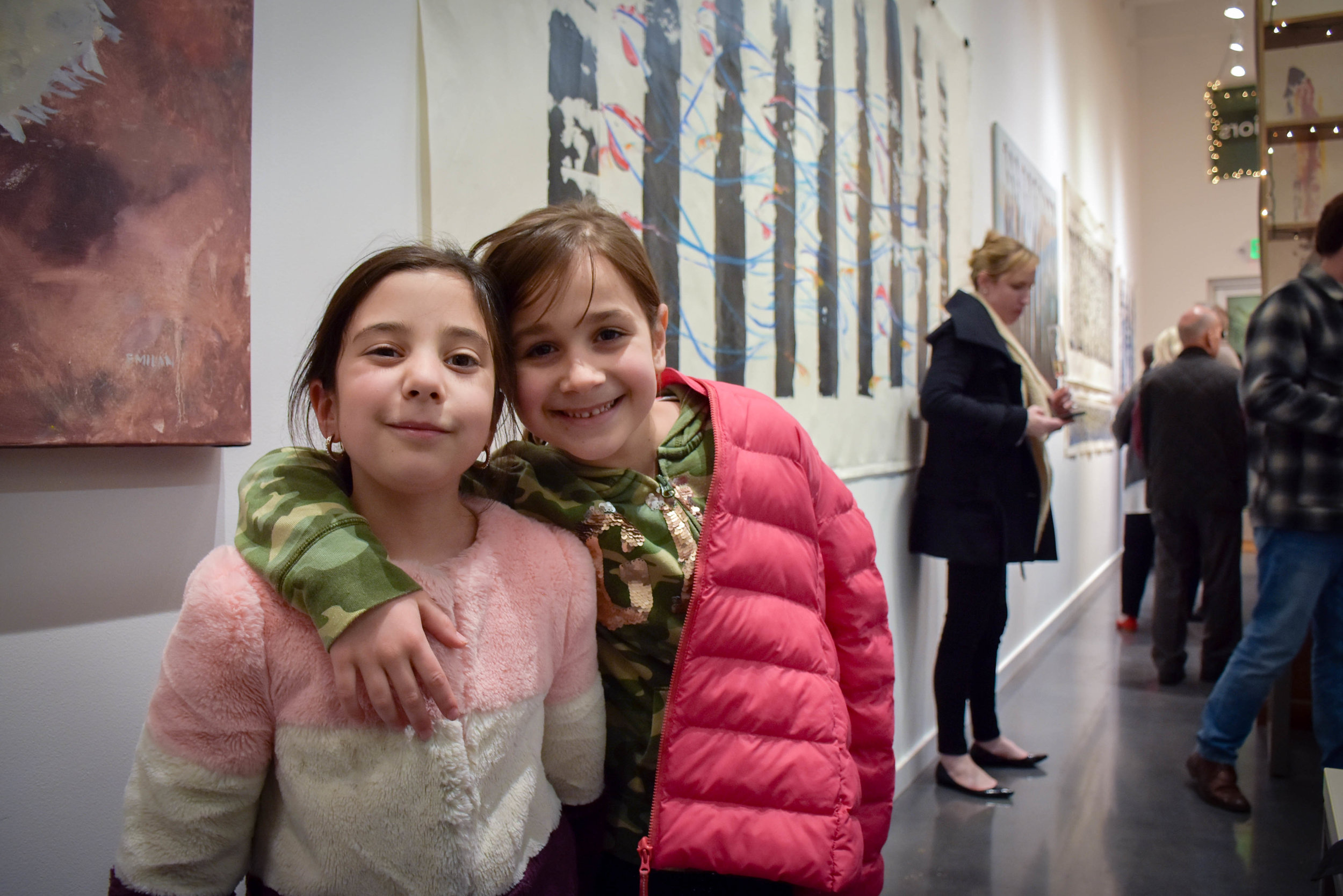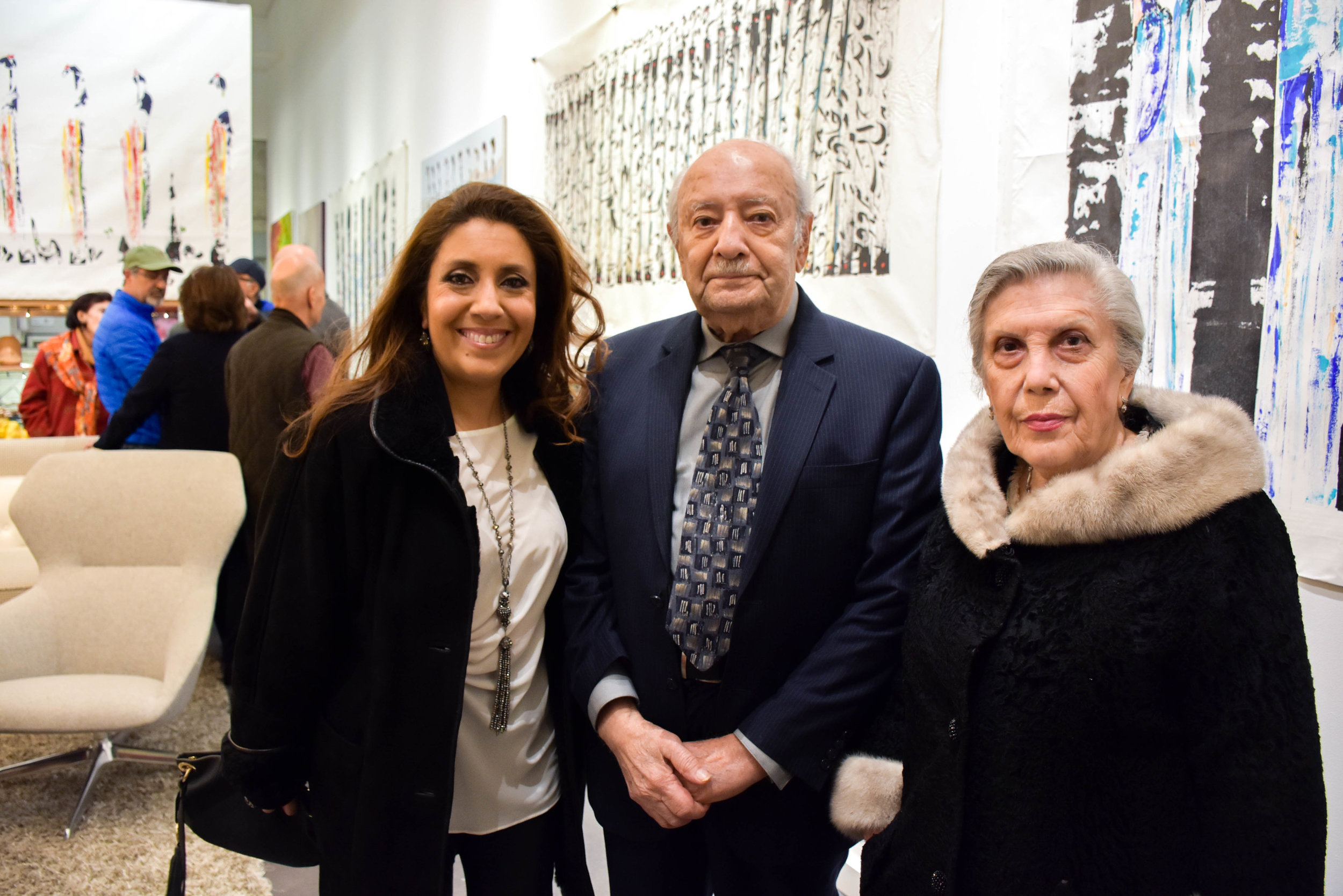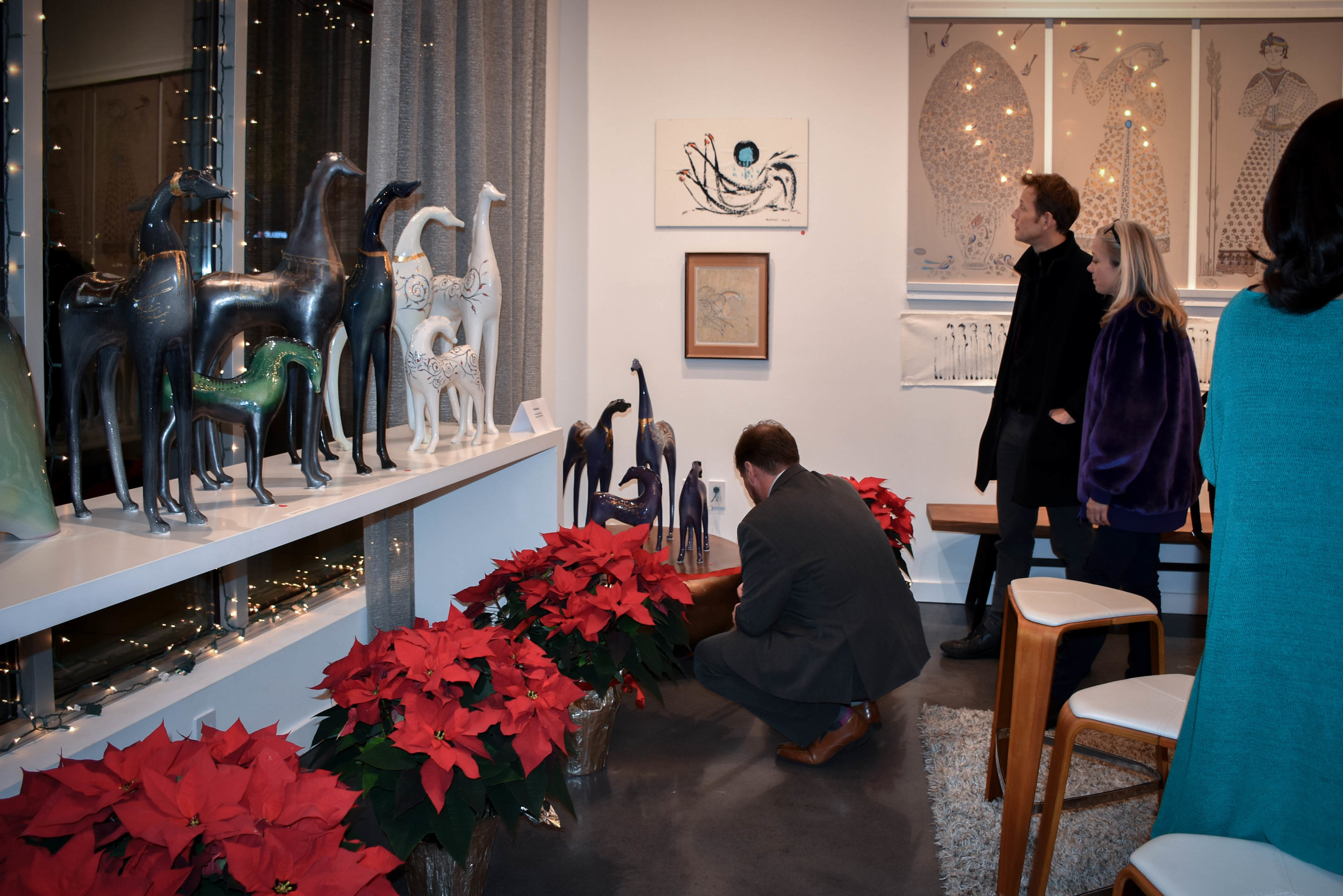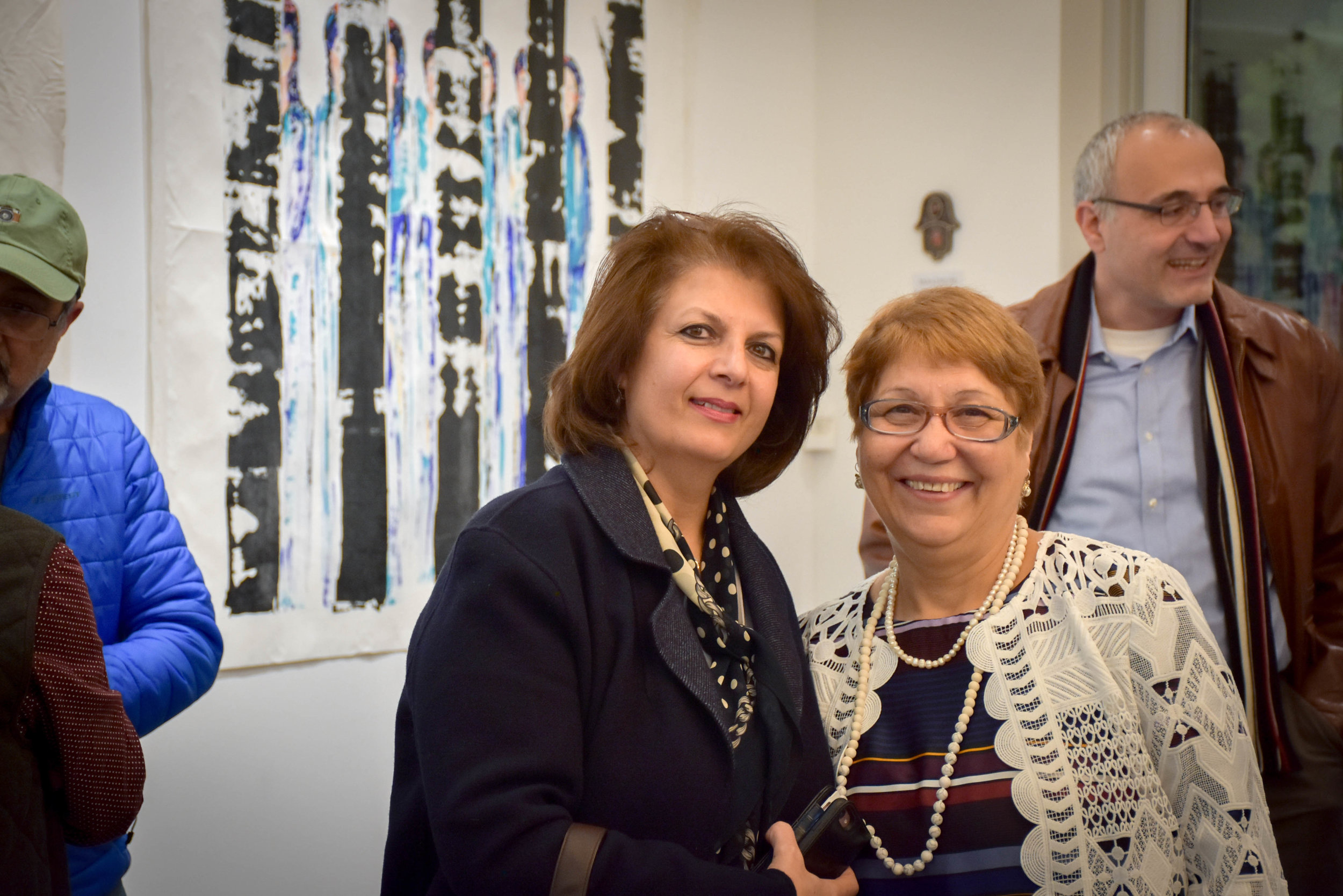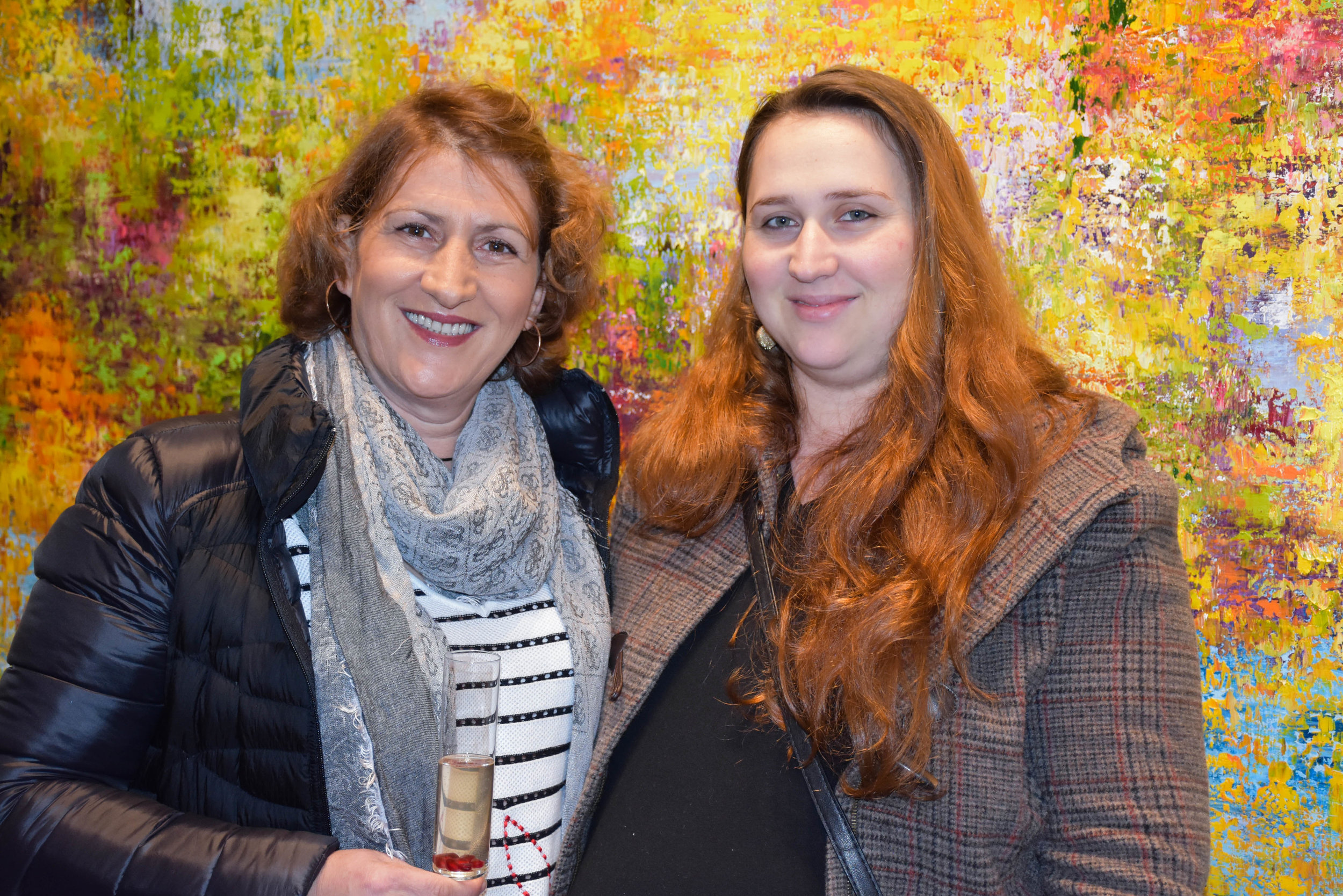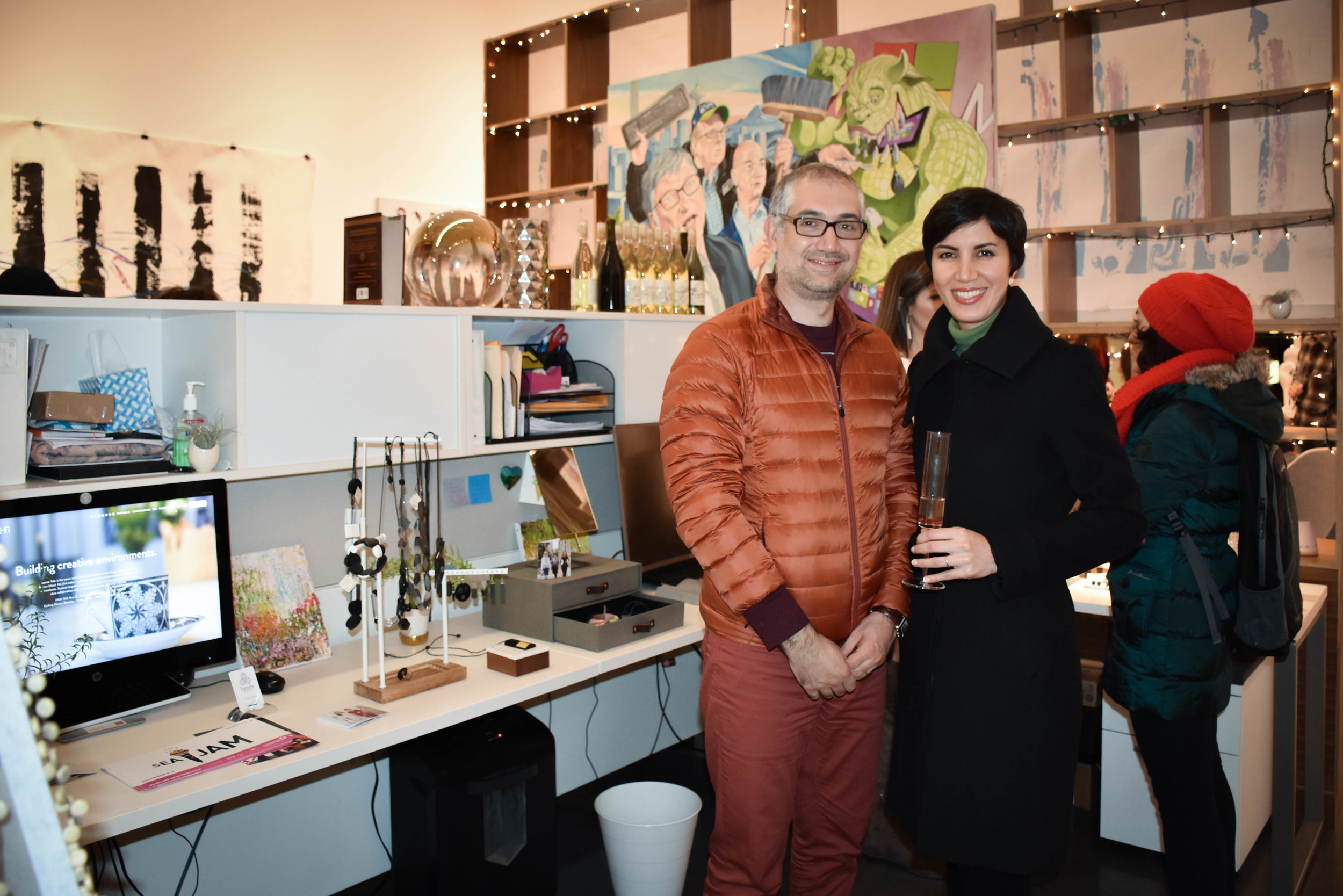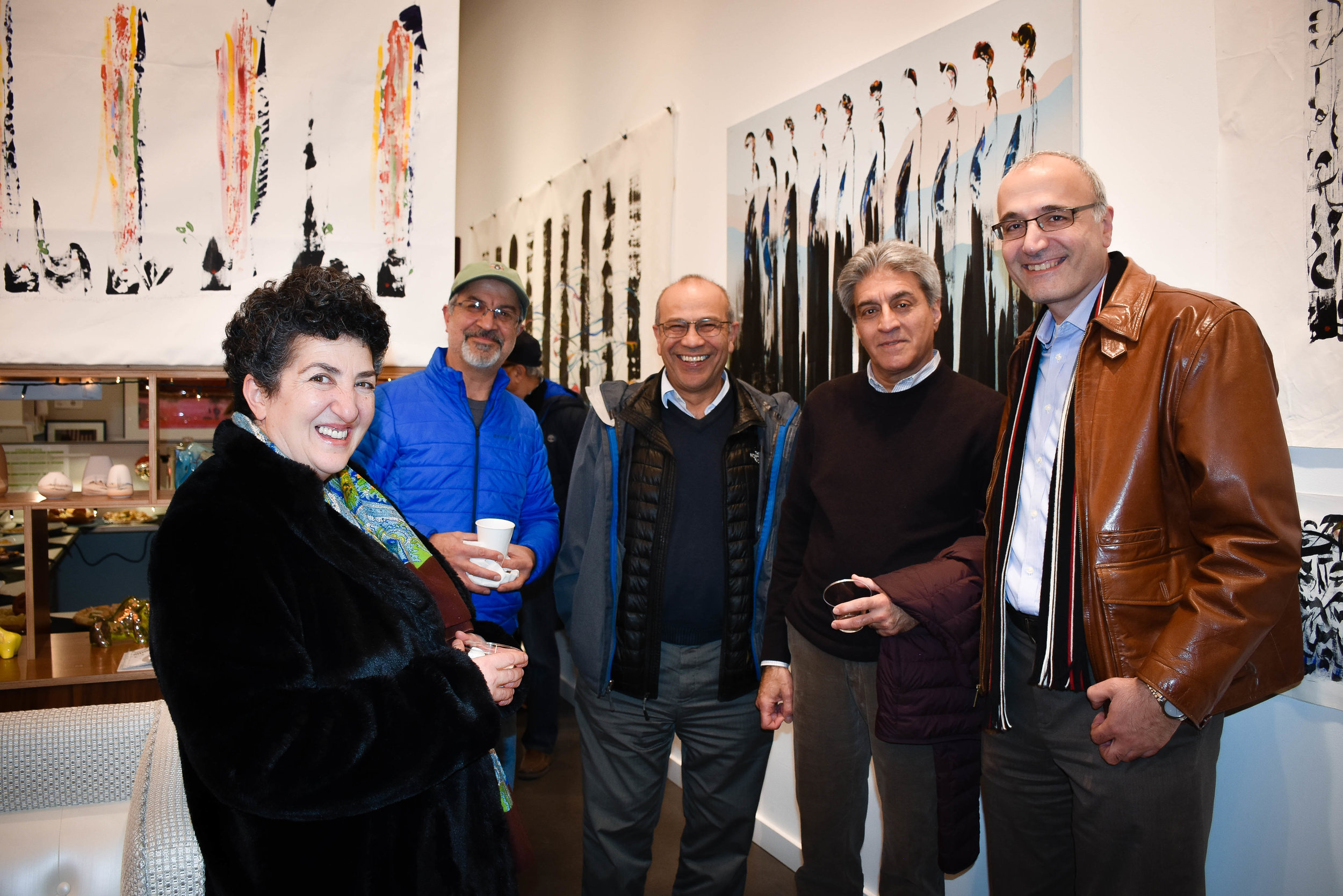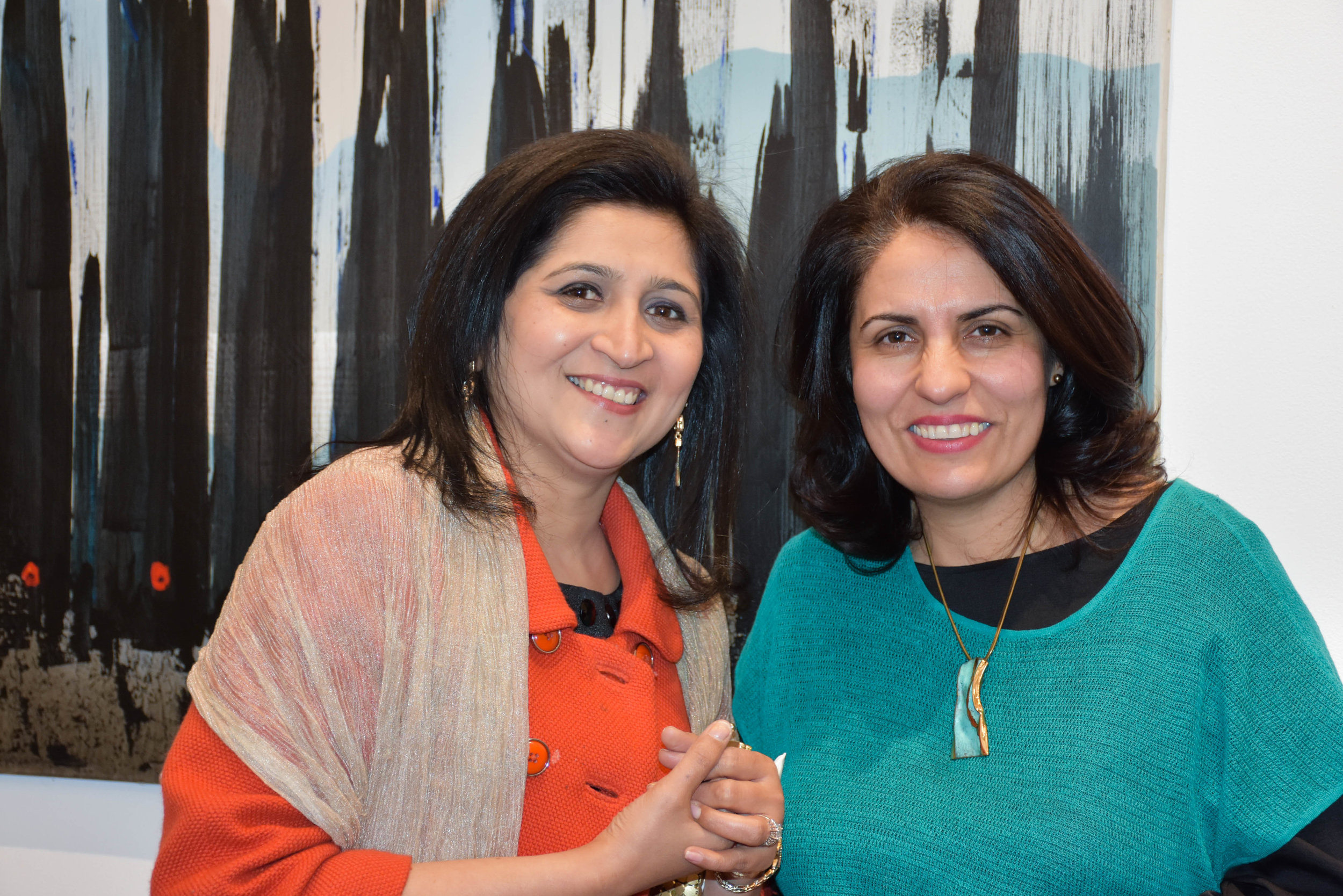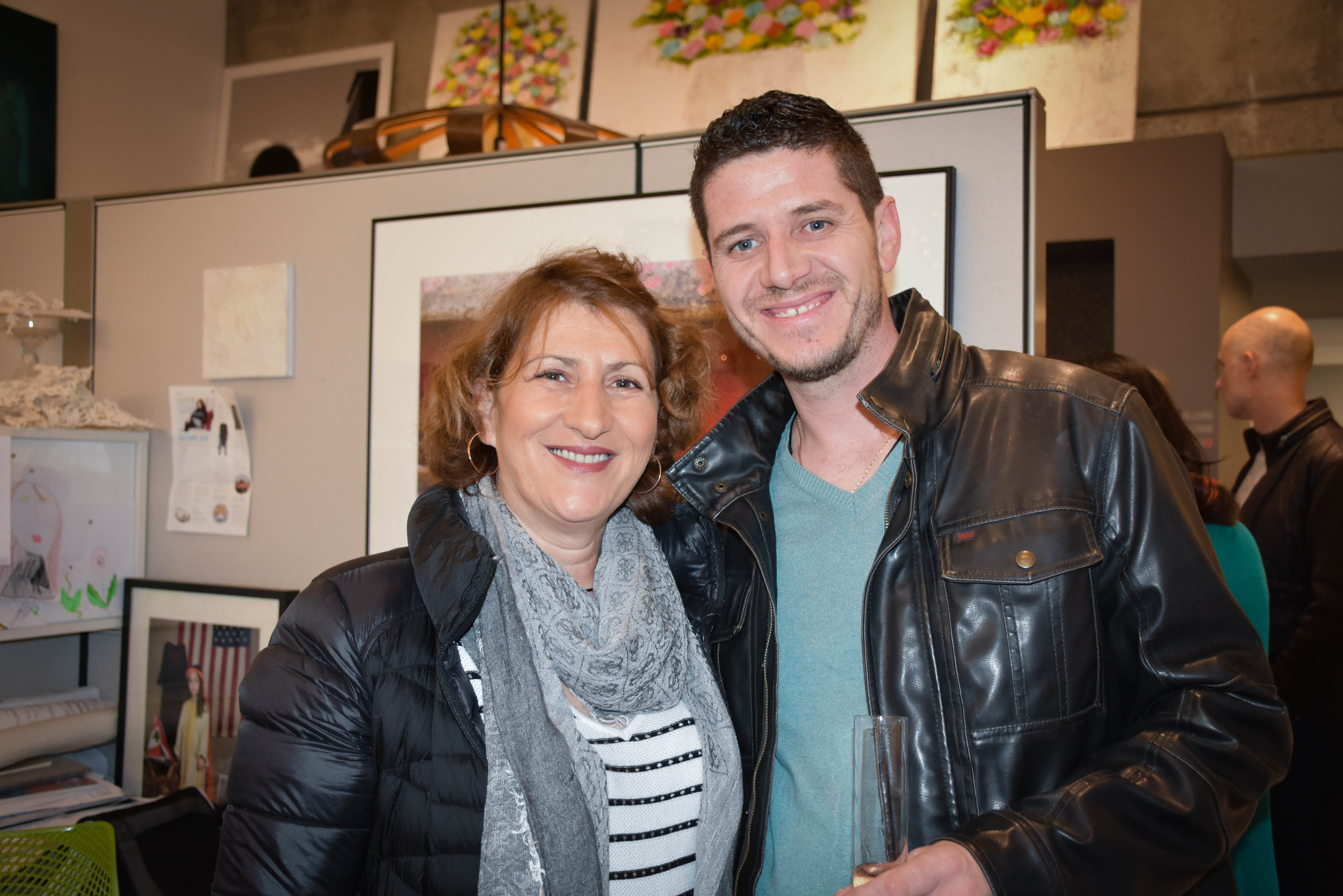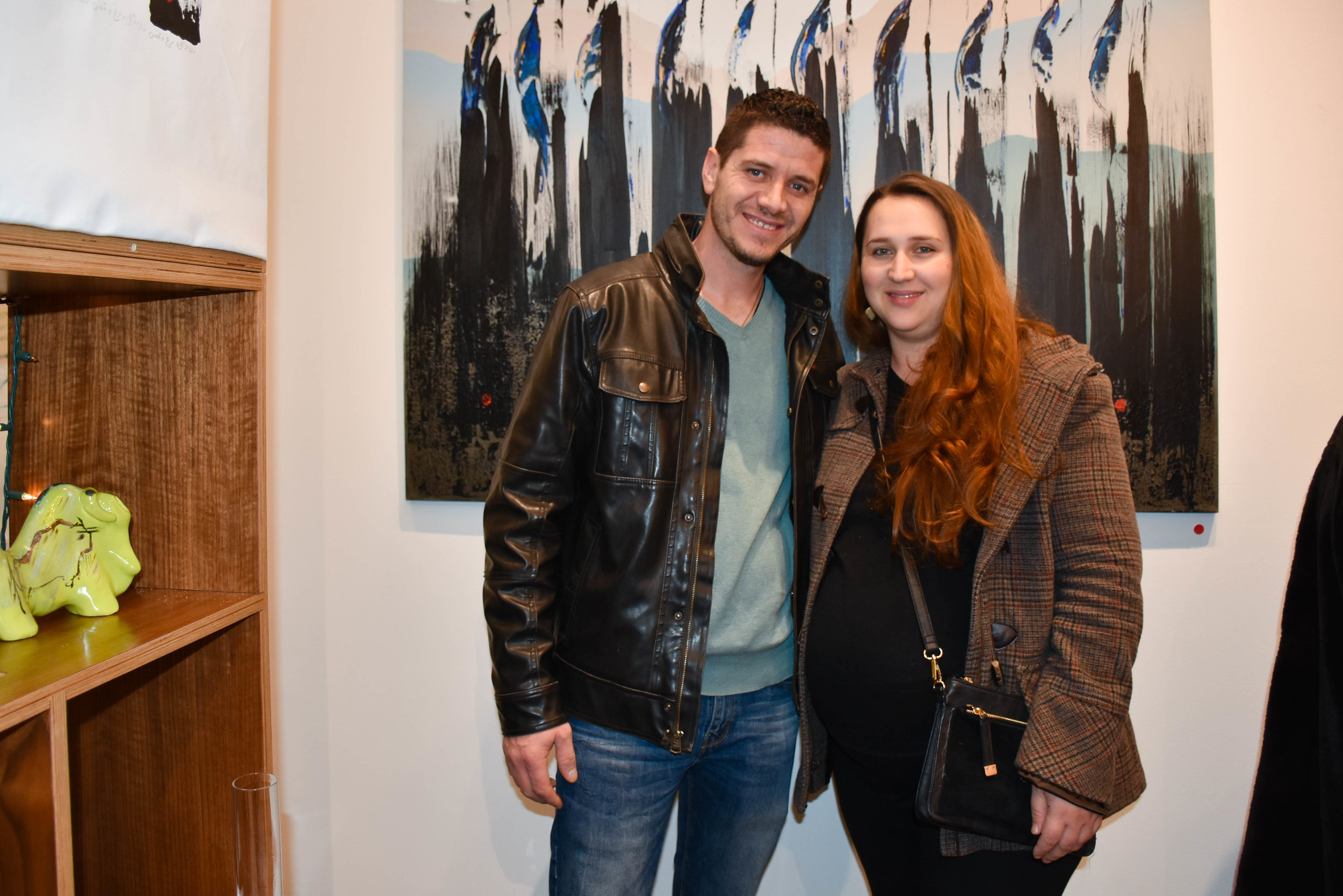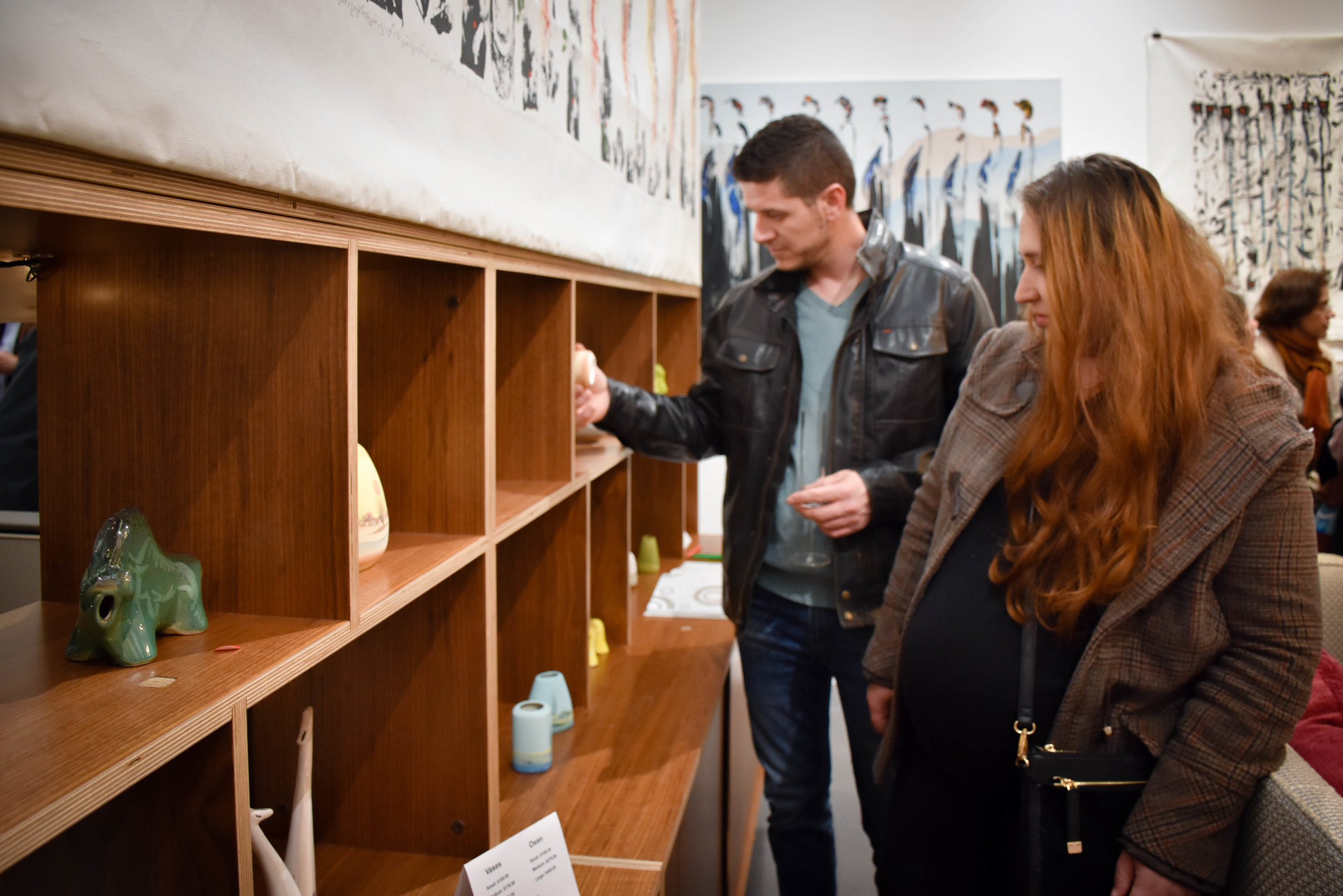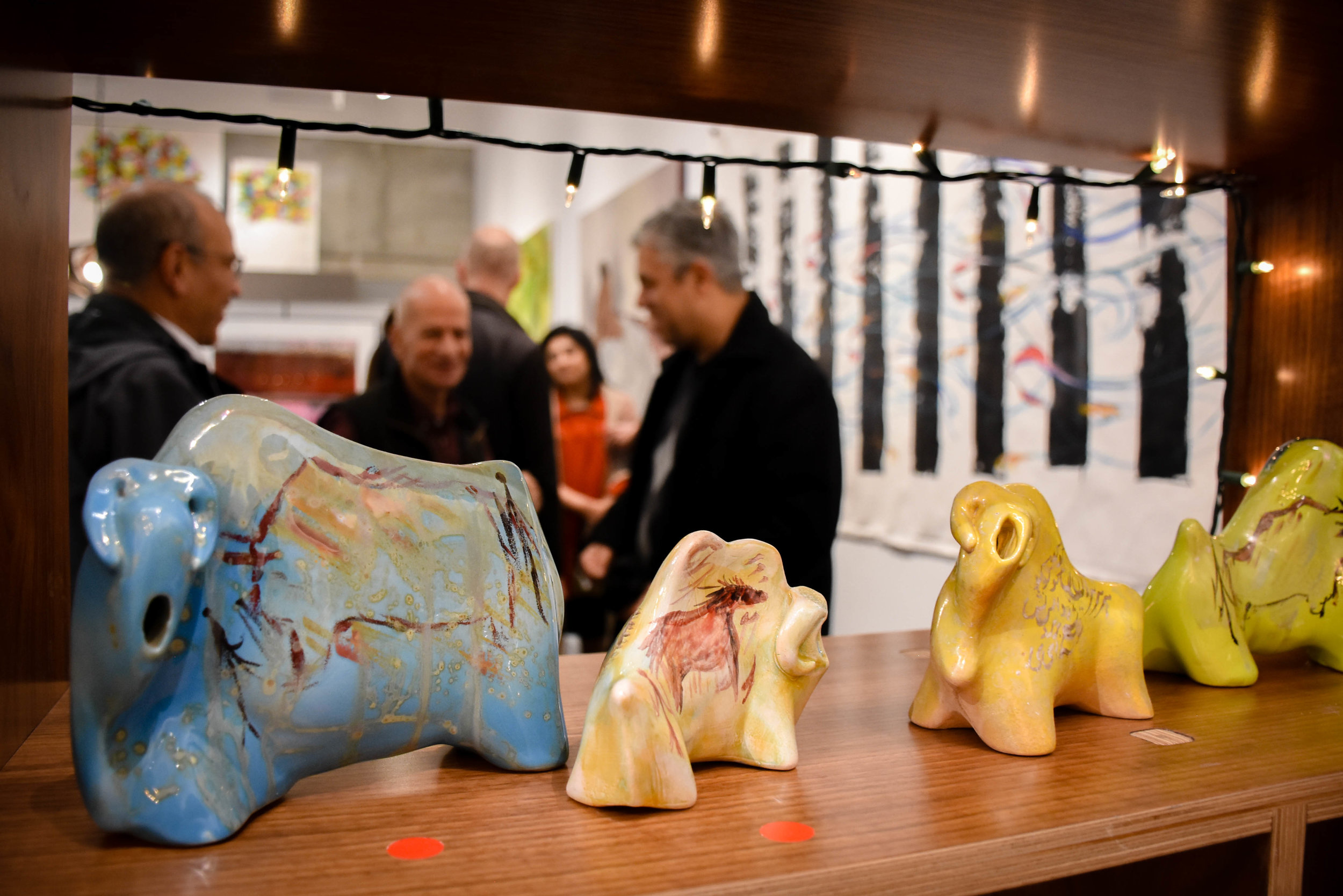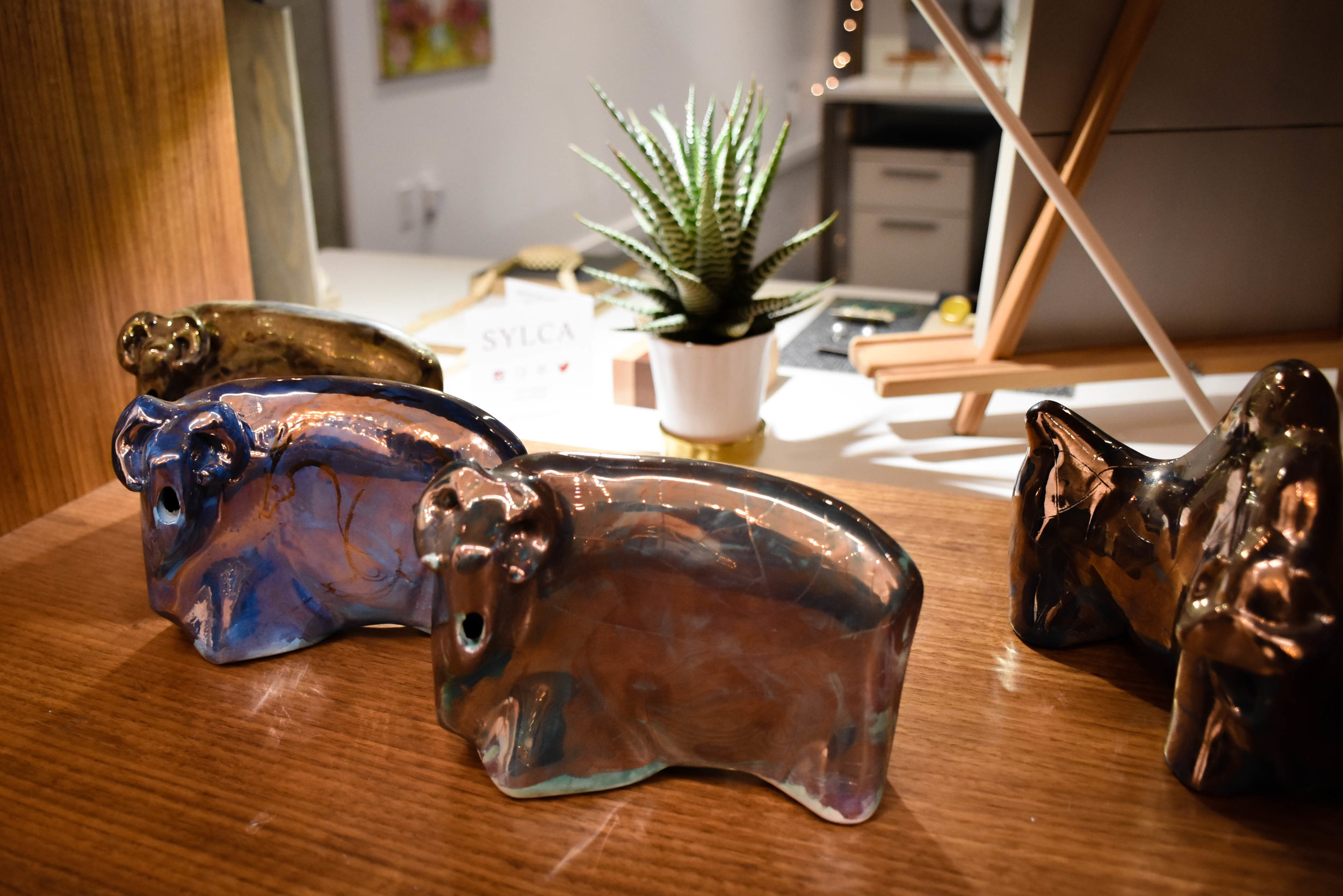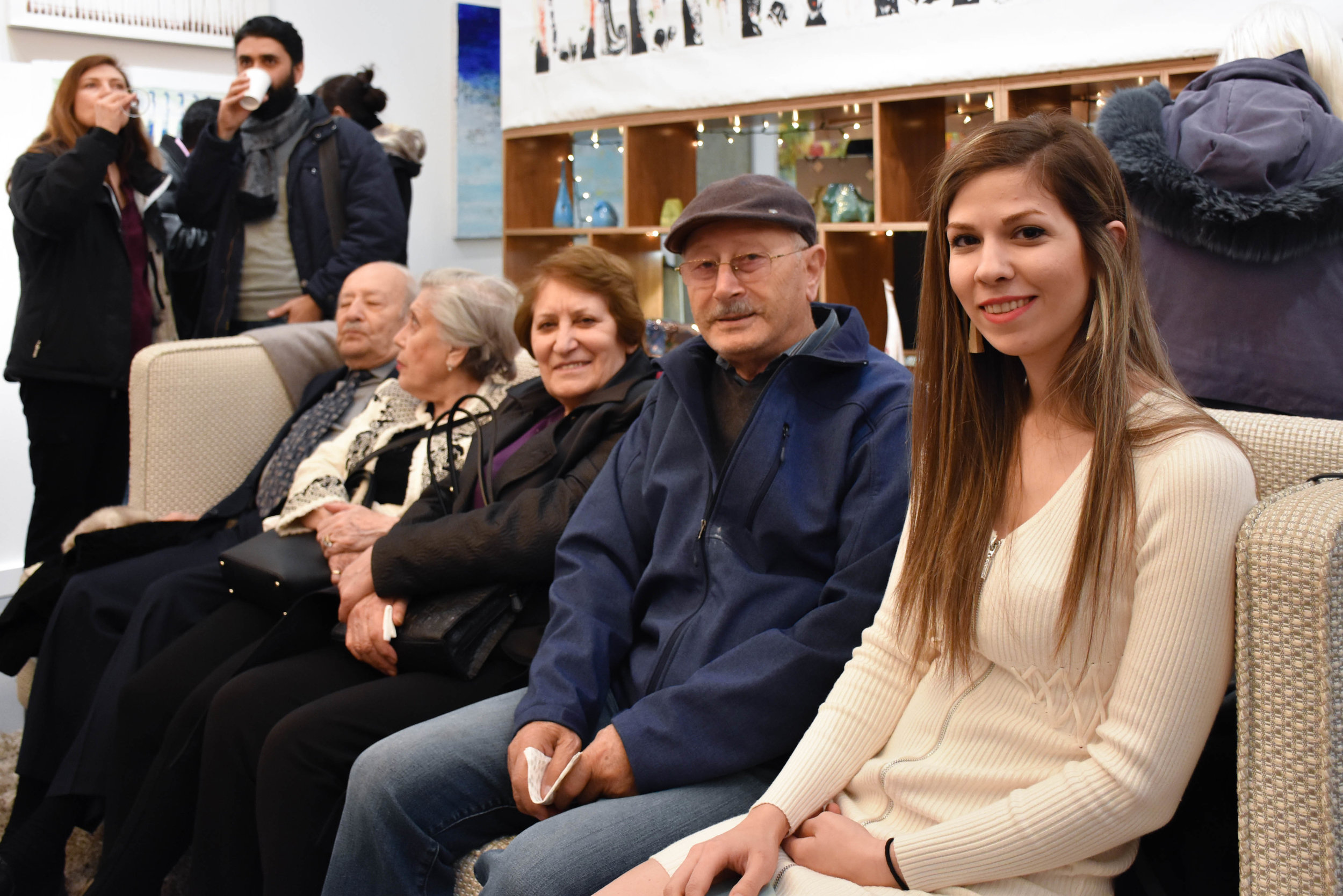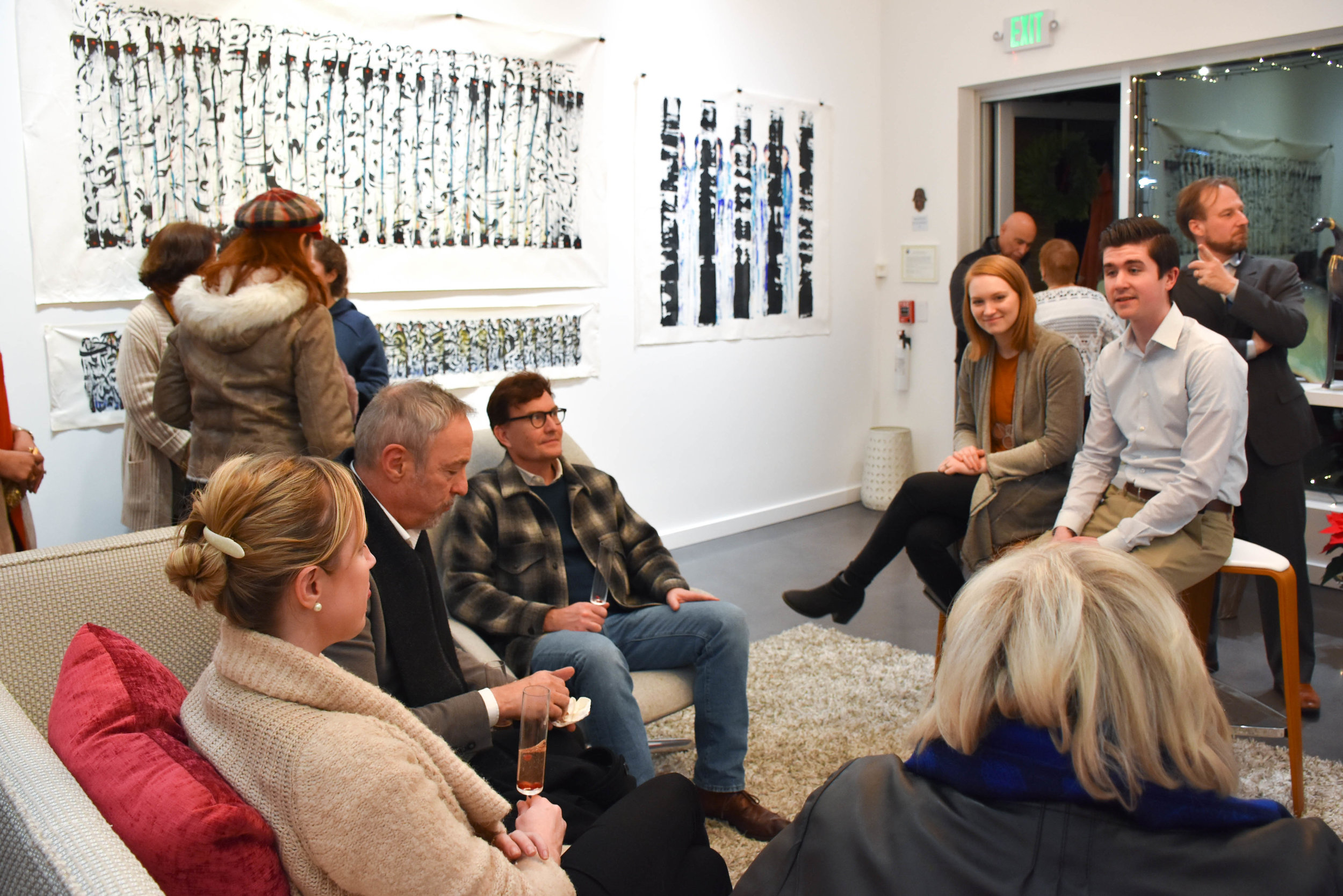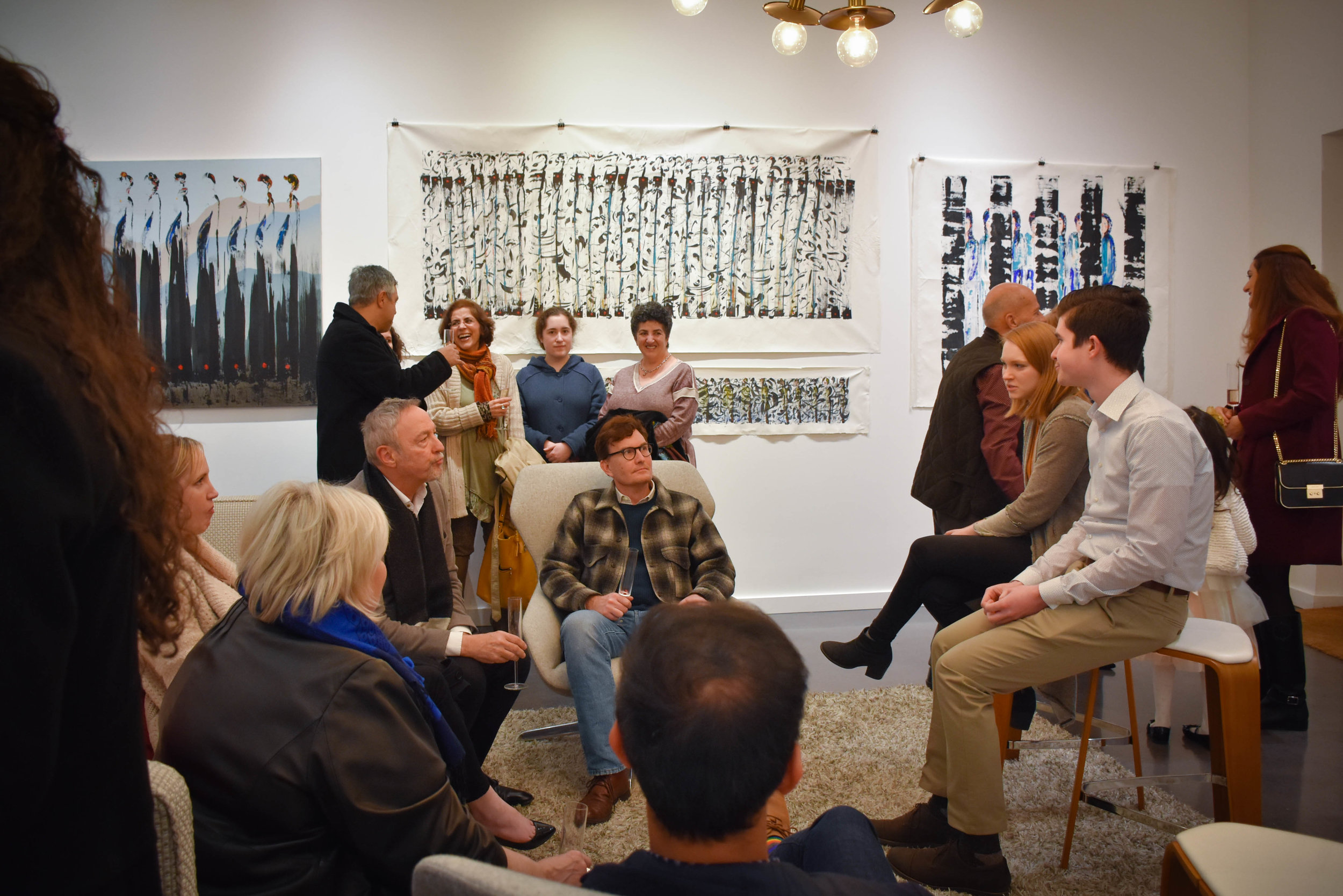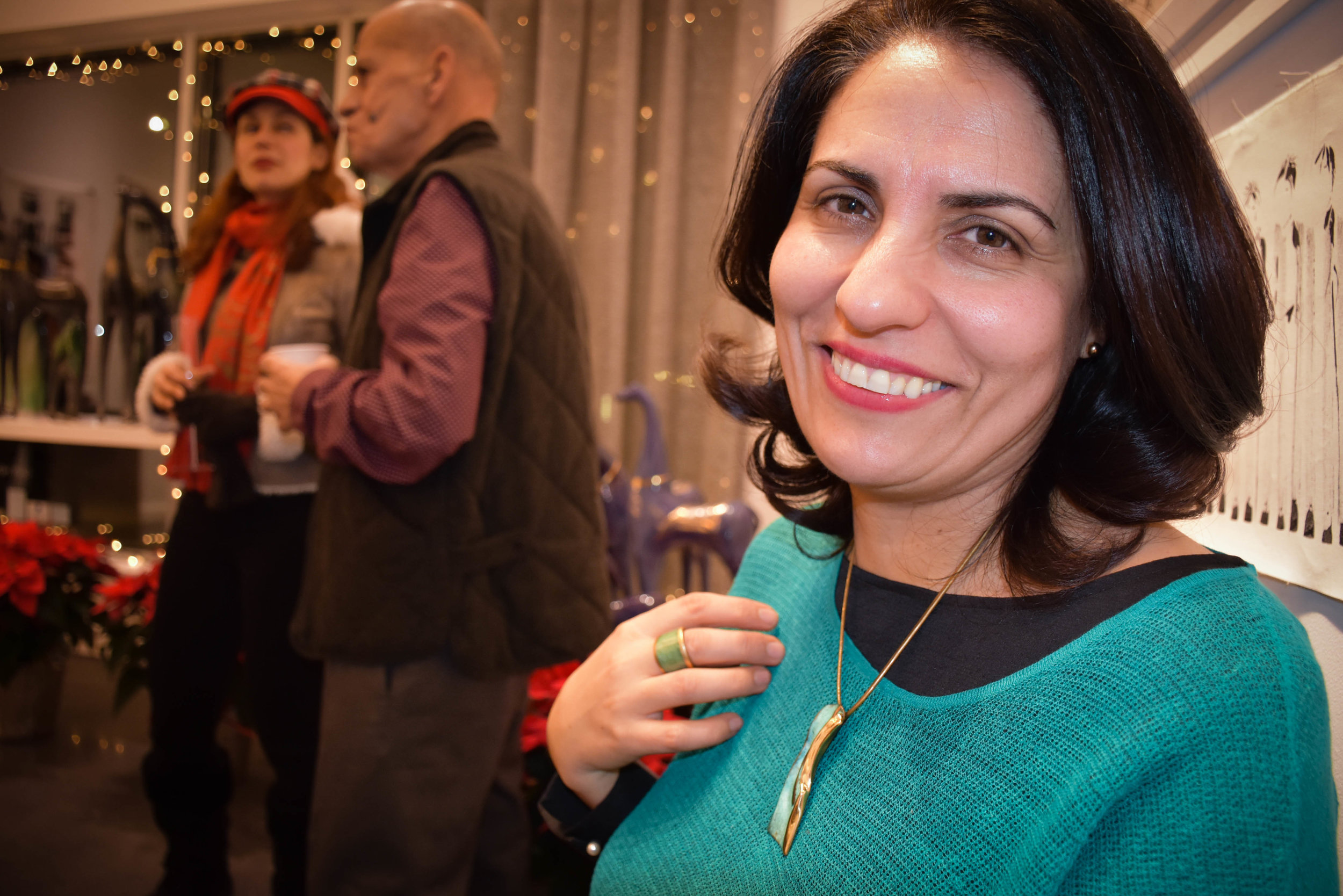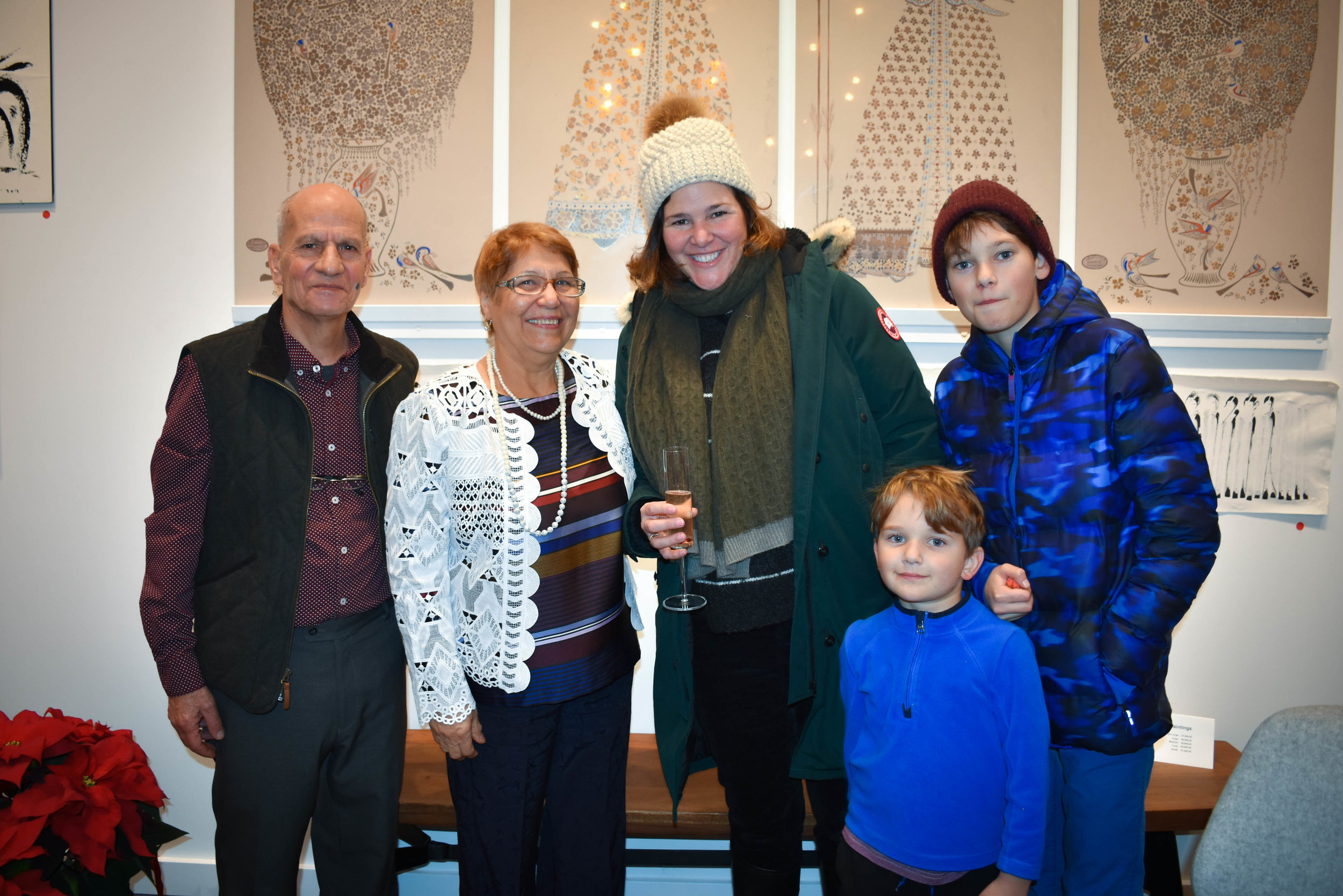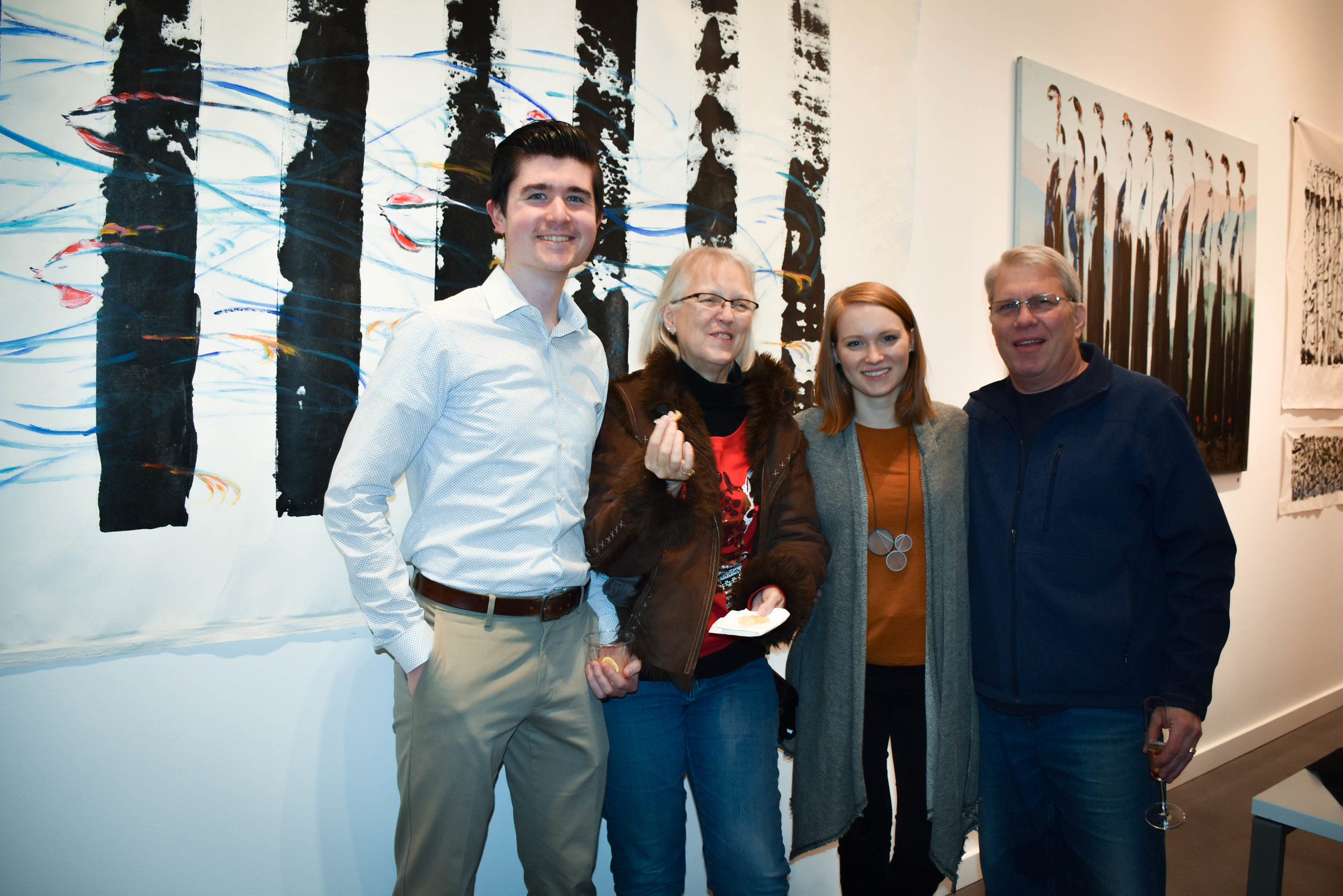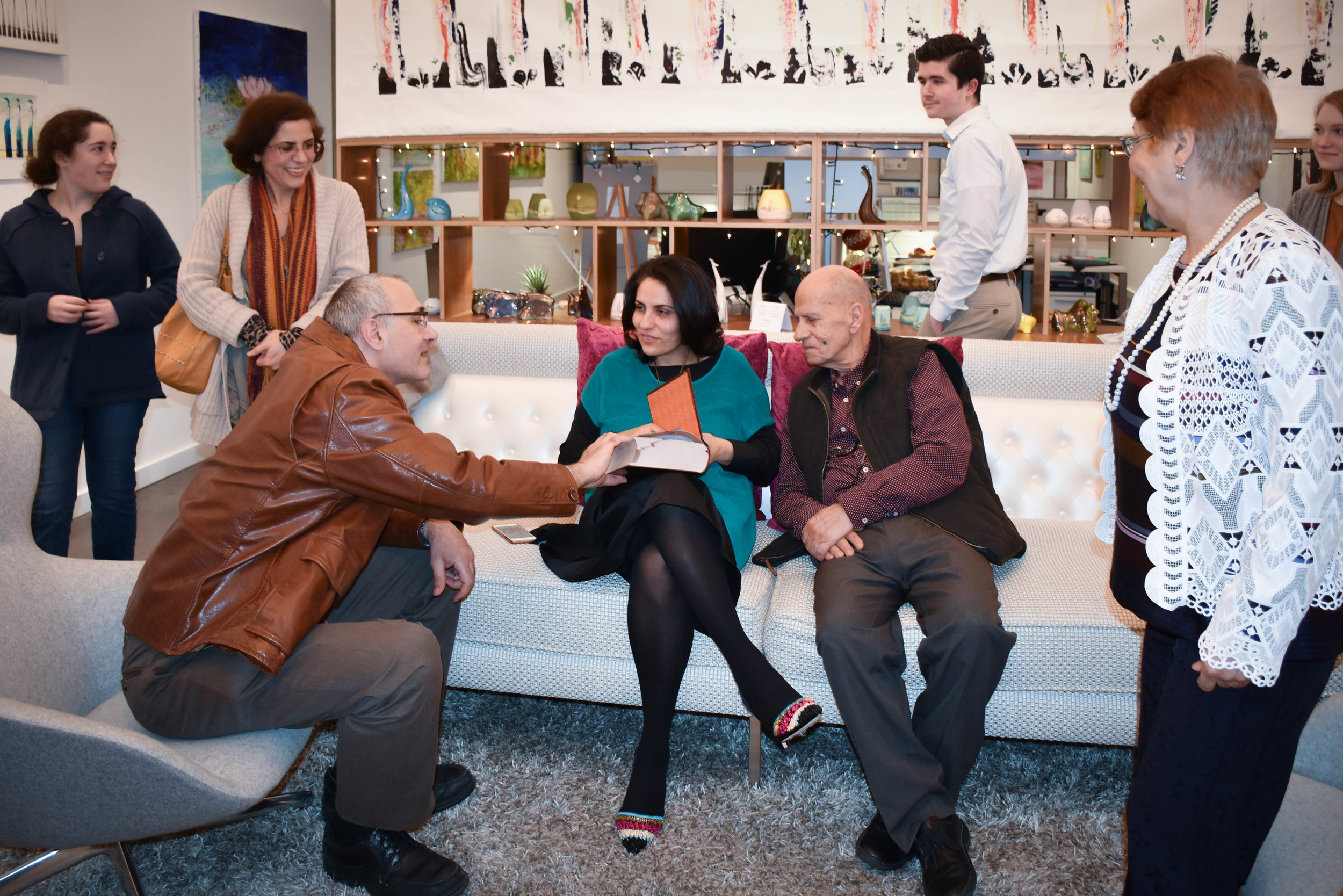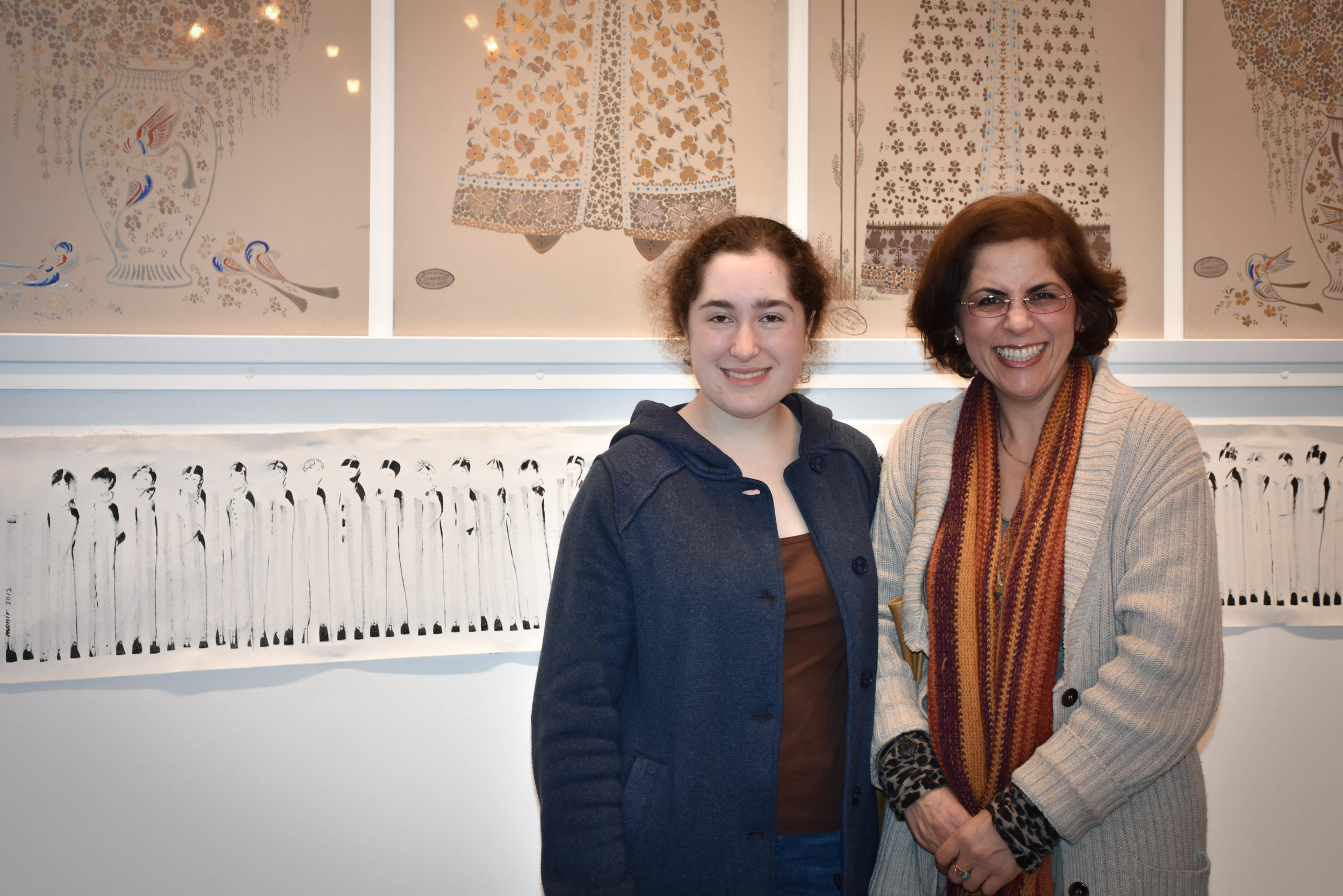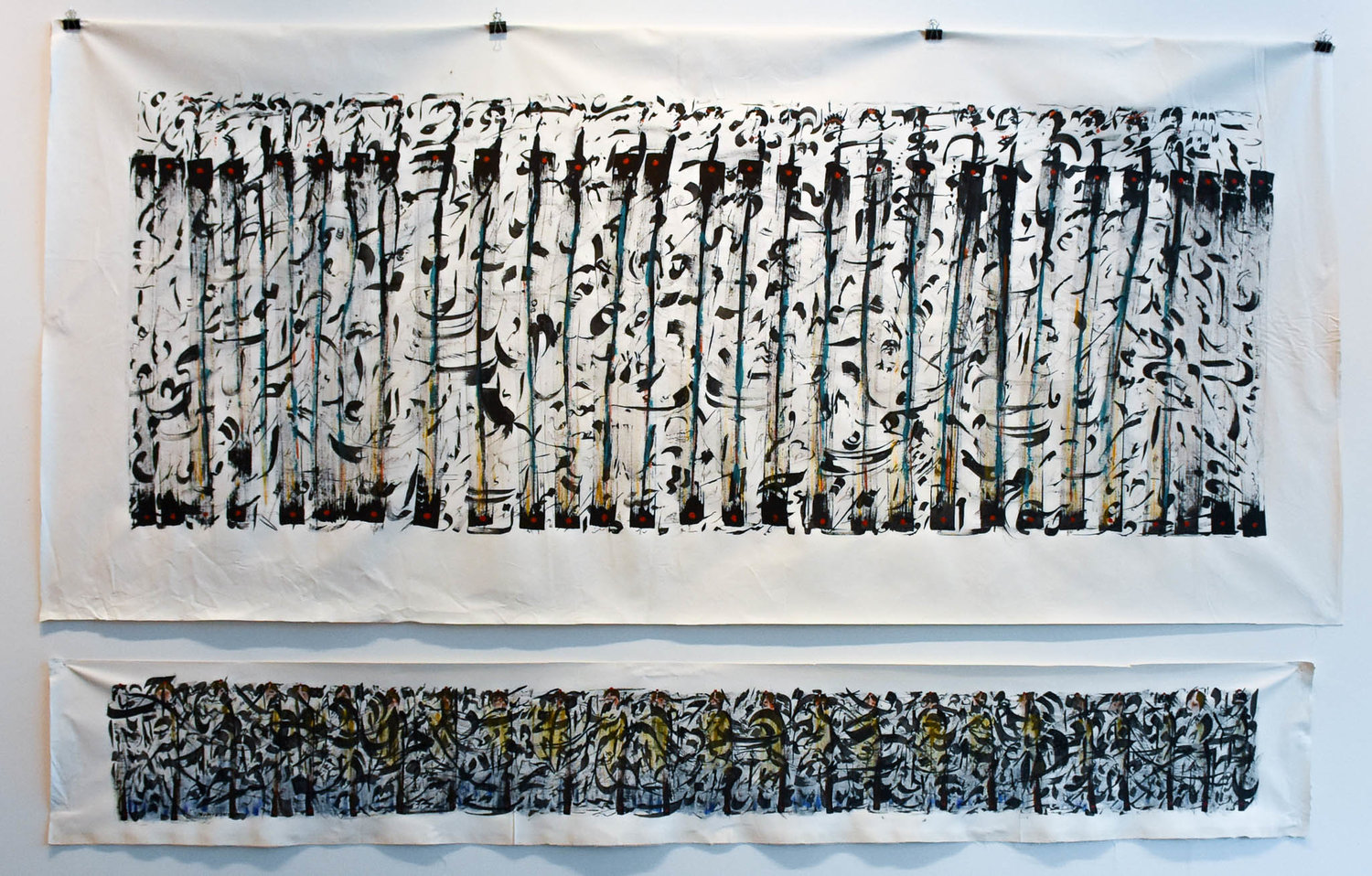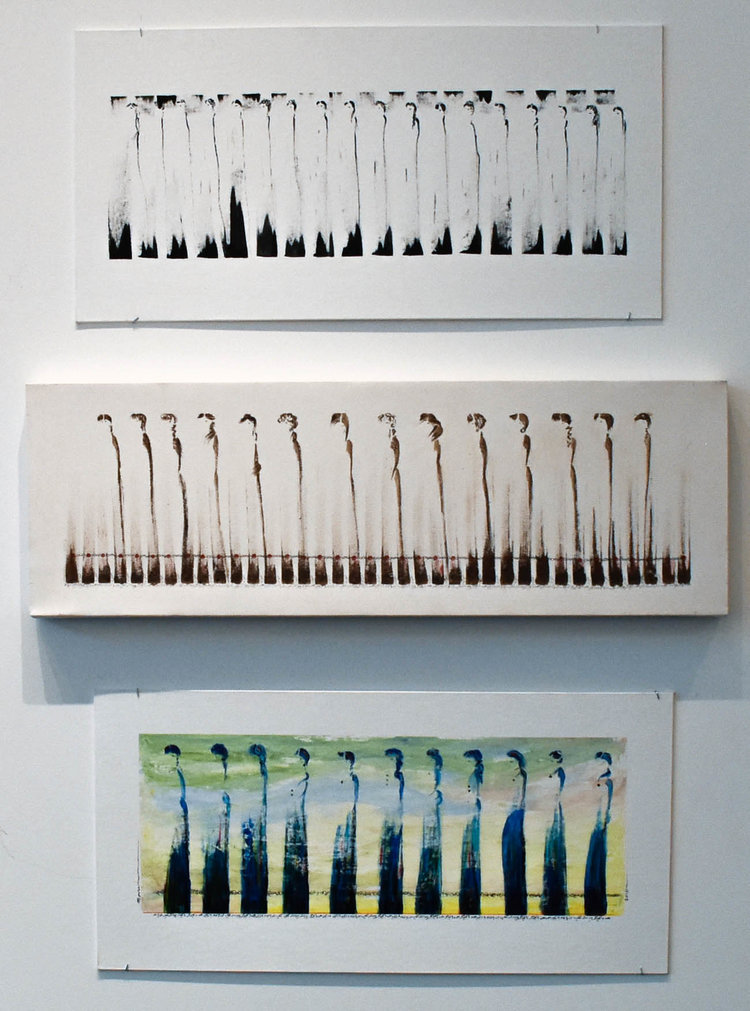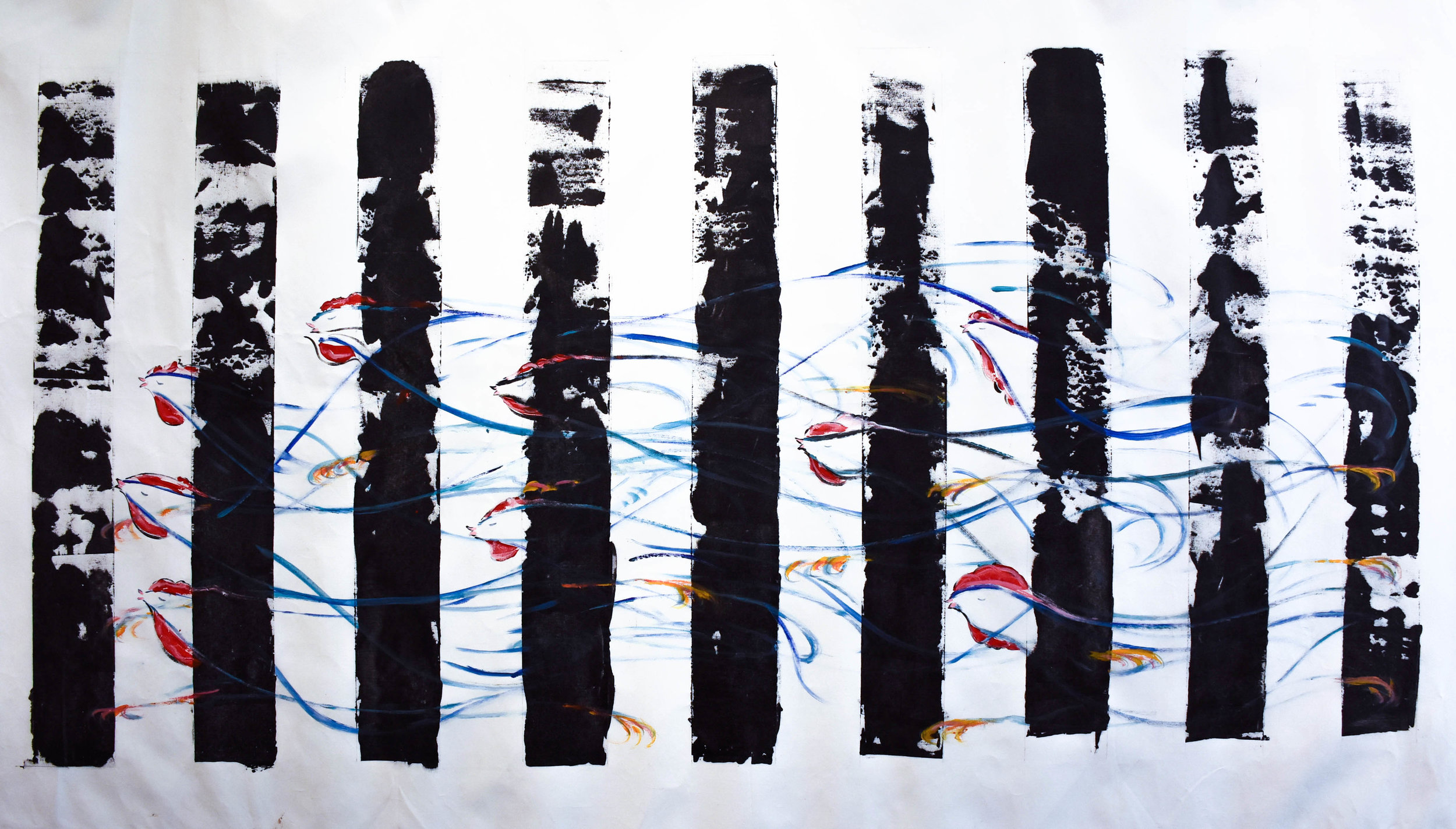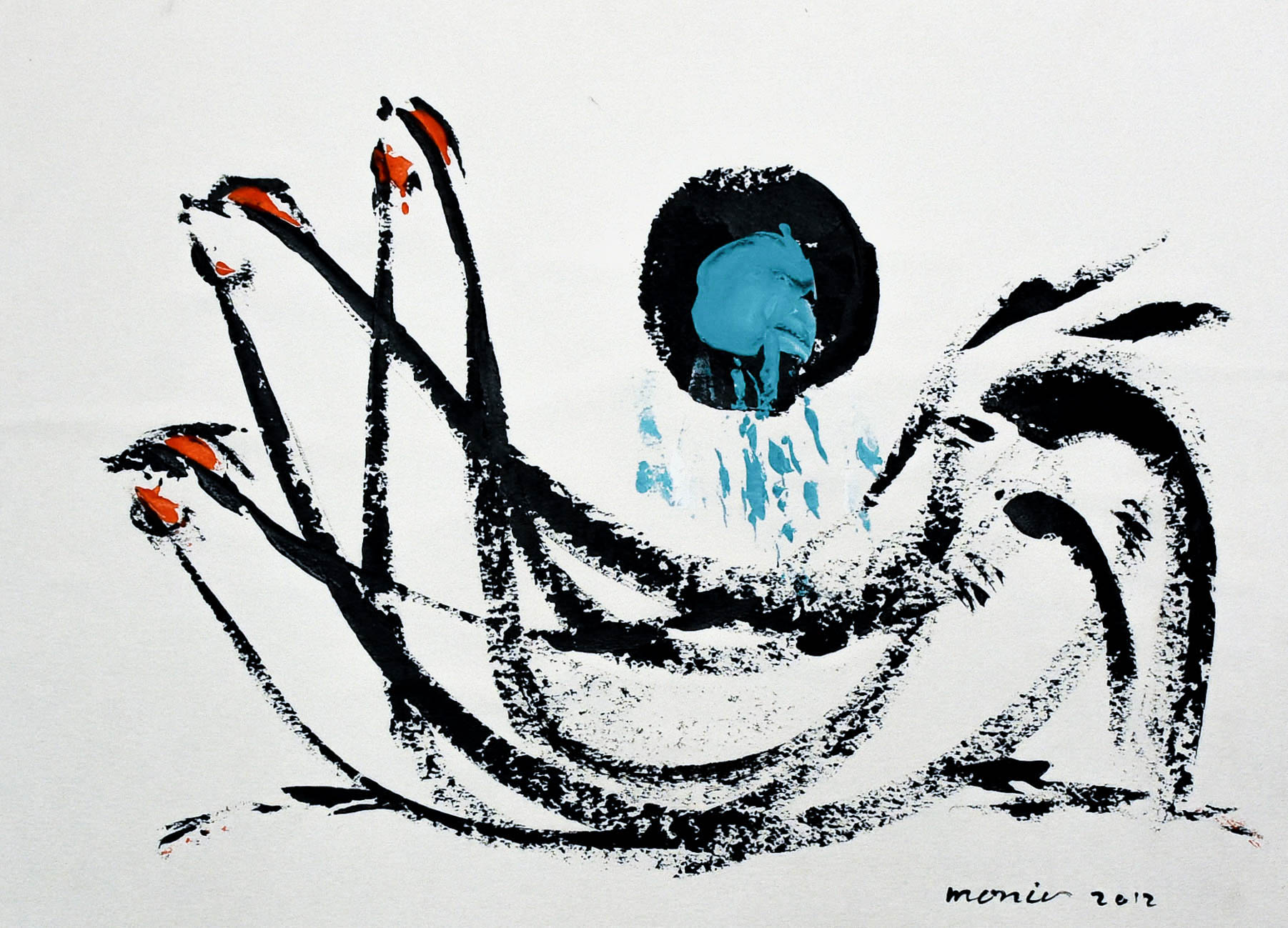**NOTE: Our next Artist Reception will be on the SECOND Friday, January 11, 2019**
“To make peace in the world” - the motto of artist couple Mehdi and Monir Ghanbeigy. This is the second year their work has been showcased at the SZ Gallery, and I feel honored they make time to be an artistic part with the Mercer Island community.
The work of Mehdi and Monir is unique. If you caught the Persian Garden last year, then you saw the impact their artistry had on the community: vibrant sculptures, decorative plates, and traditional Persian form (miniature), with a modern bent, enraptured the audience. This year was no different.
The new works presented to us by the Ghanbeigys, on display through January, 2019, highlight another traditional Persian art form: Flower and Bird. Dating back to the 11th century, Flower and Bird is a simple style and as you may have guessed, is named as such because of its two elements, Flowers and Birds. After a short discussion with Monir, we come to find out the husband and wife team enjoy working in older forms of traditional Persian art but with the aim to “modernize the ancient.”
Their new work greets us in the form of long scrolls of silhouetted women surrounded by calligraphy. Each painting is made of one idea with four elements: woman, flower, cage, and bird. The flower represents beauty and innocence whereas the bird represents freedom. But the meaning of Ghanbeigy’s work is even more profound. Monir explains that society puts innocents into cages, just like birds and woman. Cages are depicted as either chains at the feet of each woman or red dots, which act as pins holding women to the ground. This is a reminder to not ignore women, treat them with respect, and there will be peace in this world.
Words and poem segments float across the canvas in various directions. In one painting the calligraphy, read from left to right, is in a continuous line of the words woman, flower, bird, and cage. In other paintings, quotes from the Persian poet Hafiz scatter about; one, in particular, reminds us that we are all in charge of our own destiny, or as Hafiz puts it: If all goes wrong in the world, then we will cut the sky, and change the destiny.
Mehdi and Monir remind us, as art often does, that peace and love are paramount. We are each part of this world with shared common interests; compassion speaks to our humanity and connects us throughout nations and continents.
Happy Holidays to you, and may your family have peace in the New Year.
